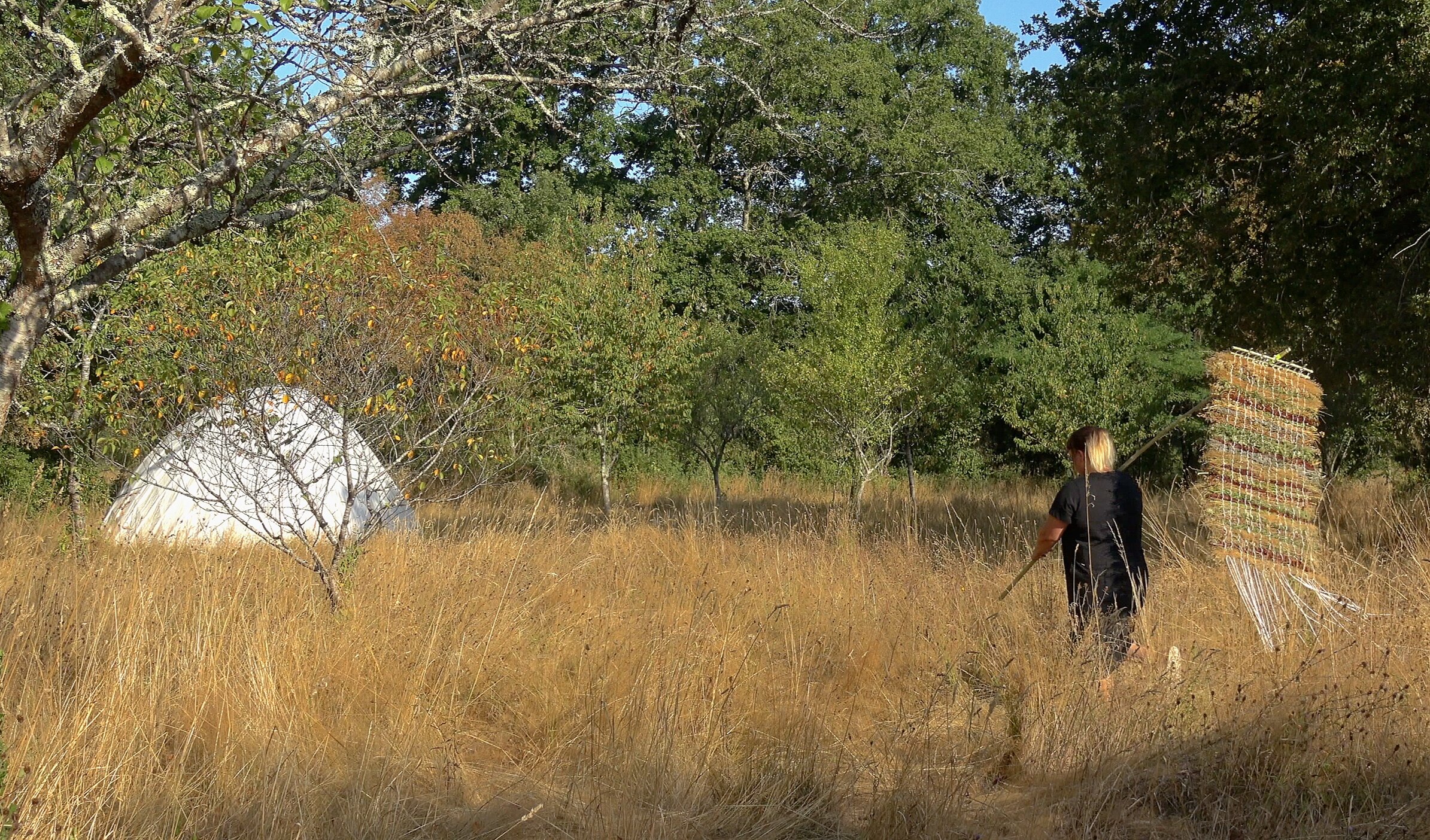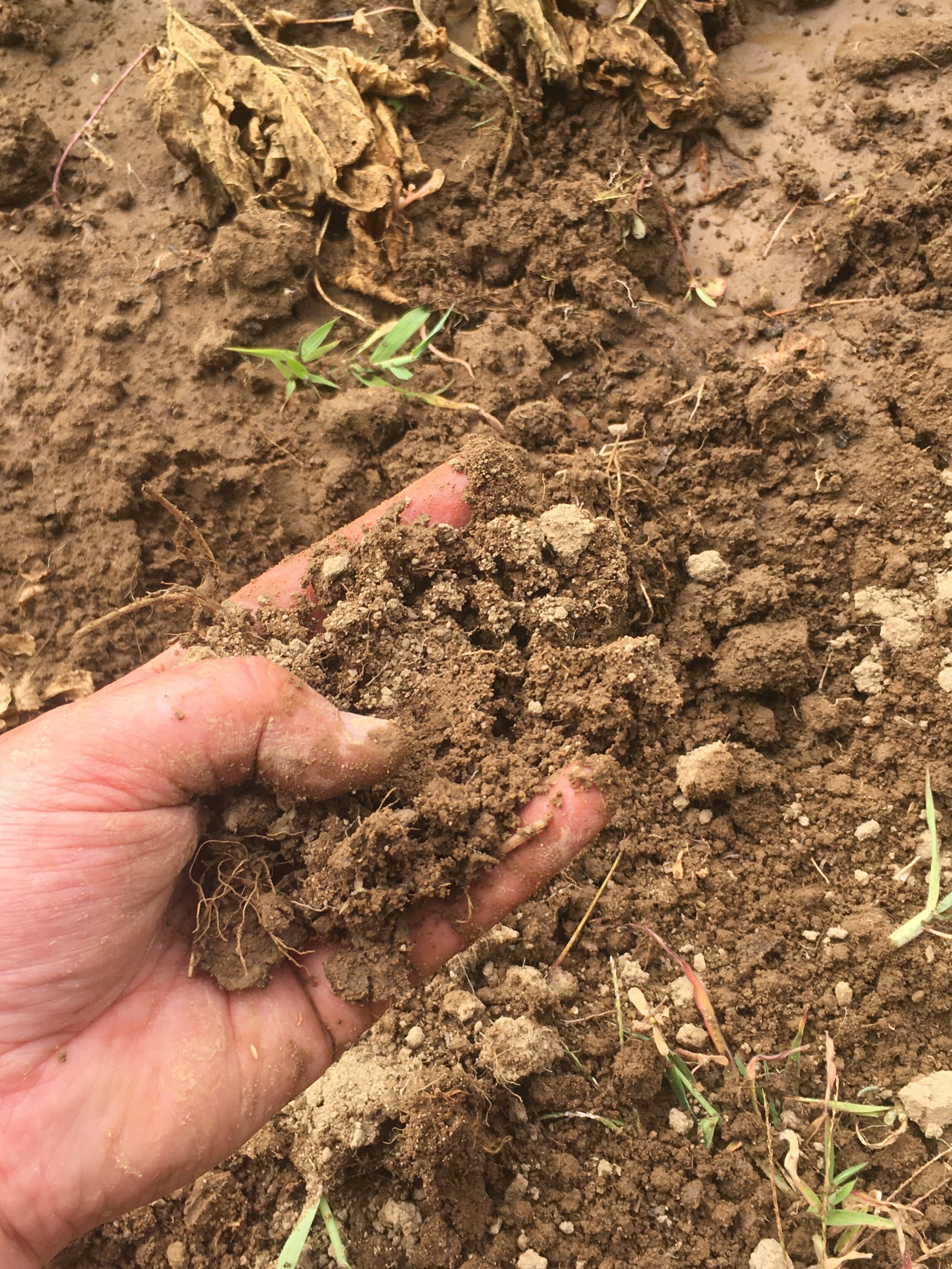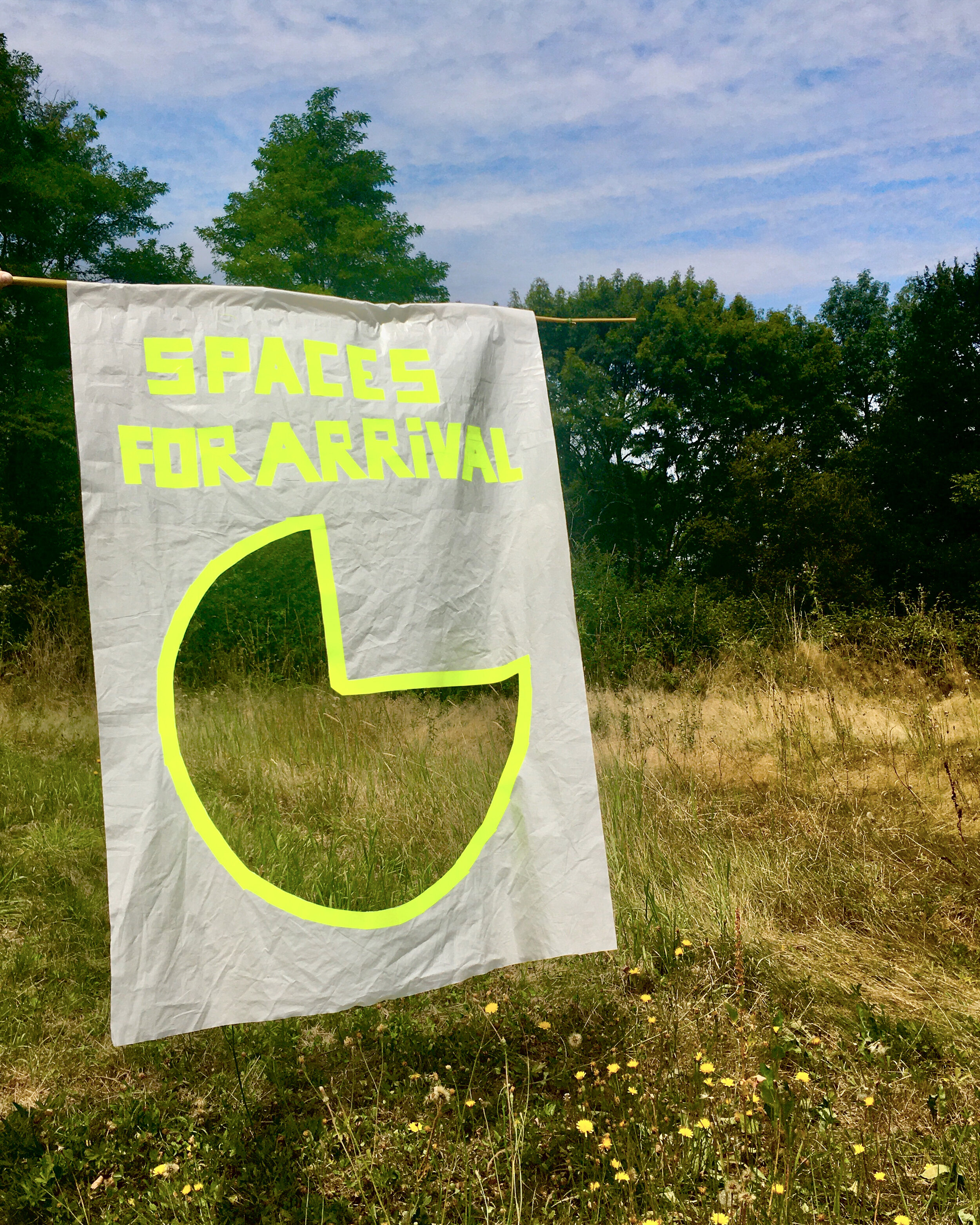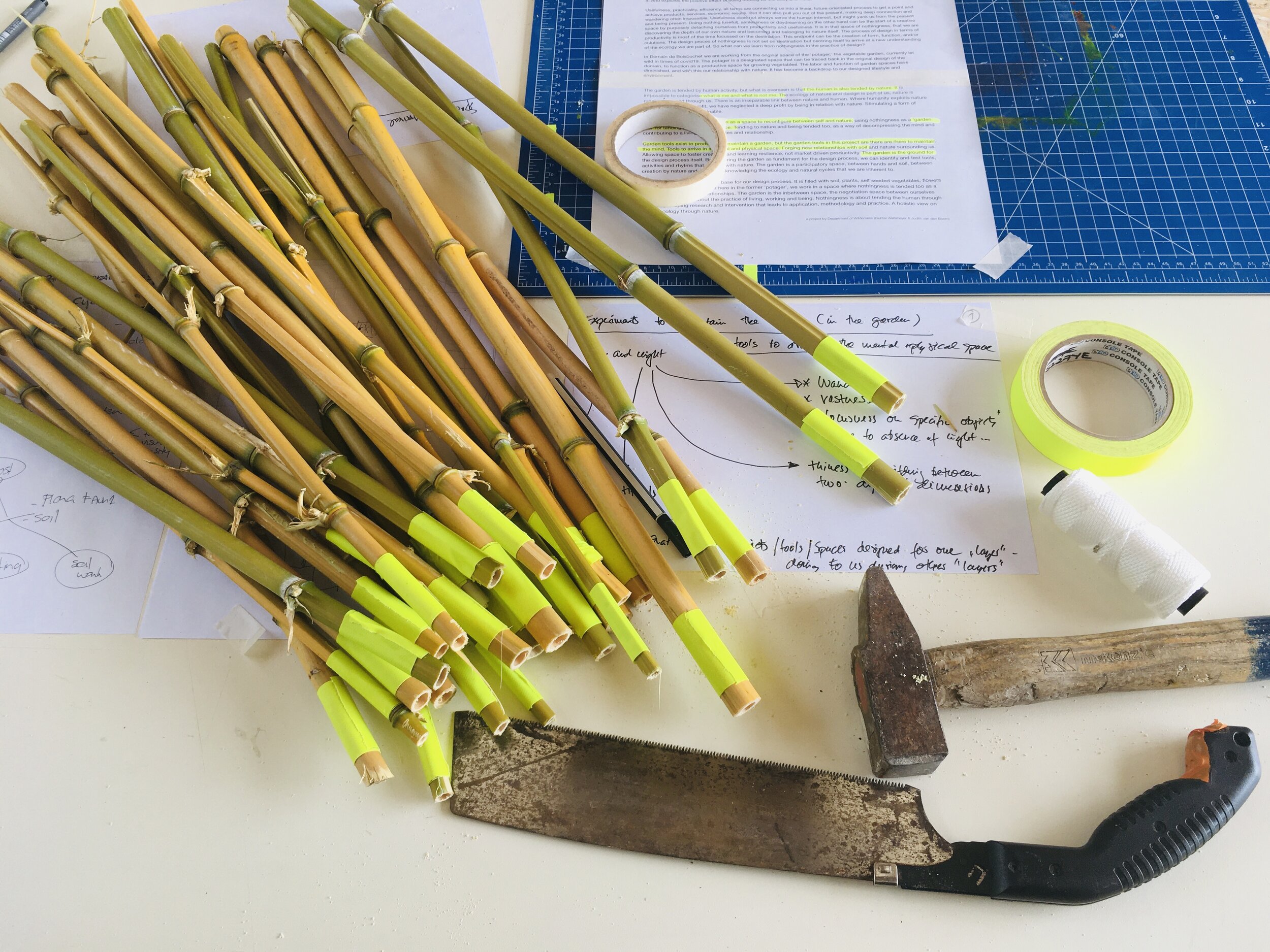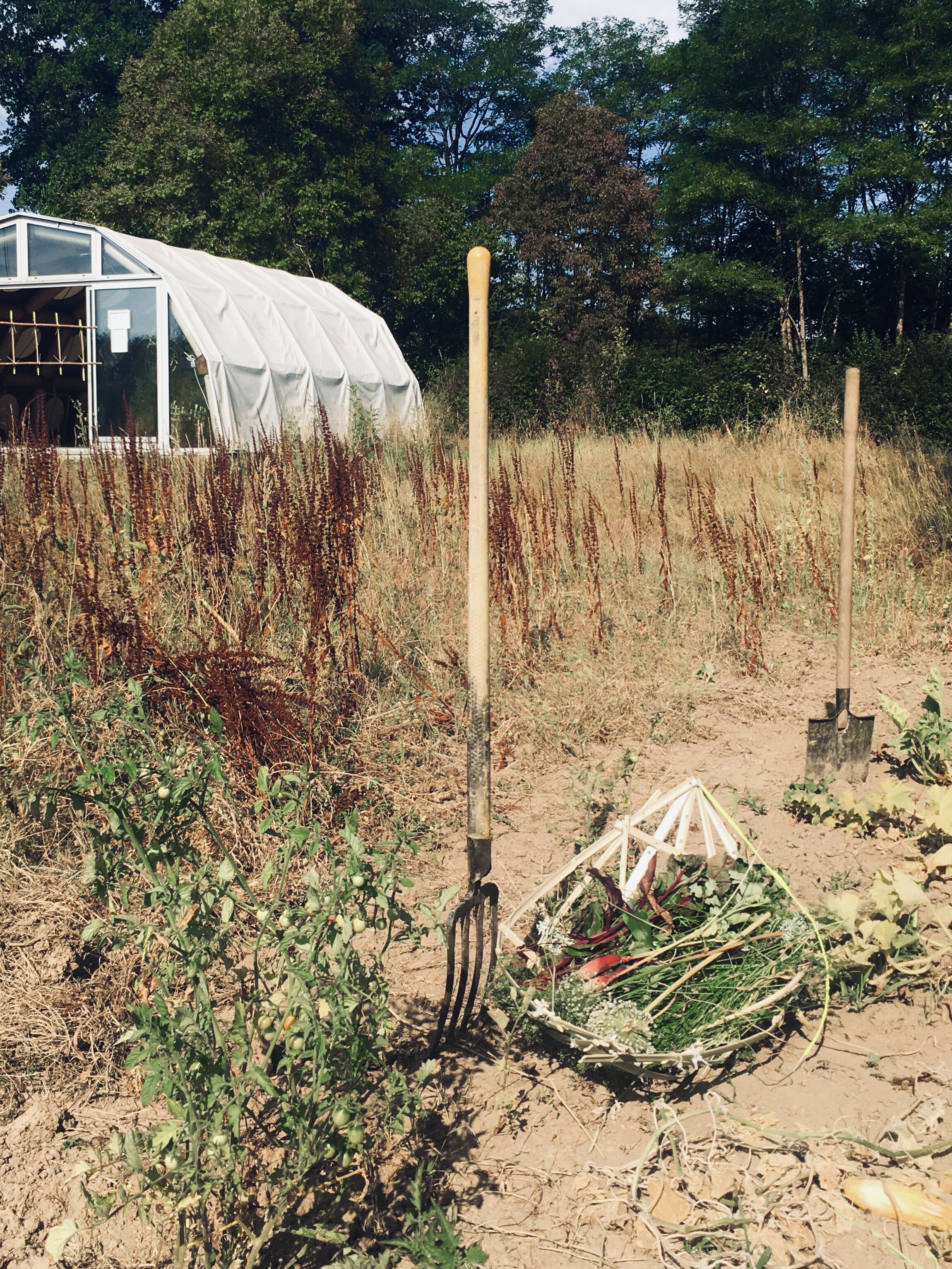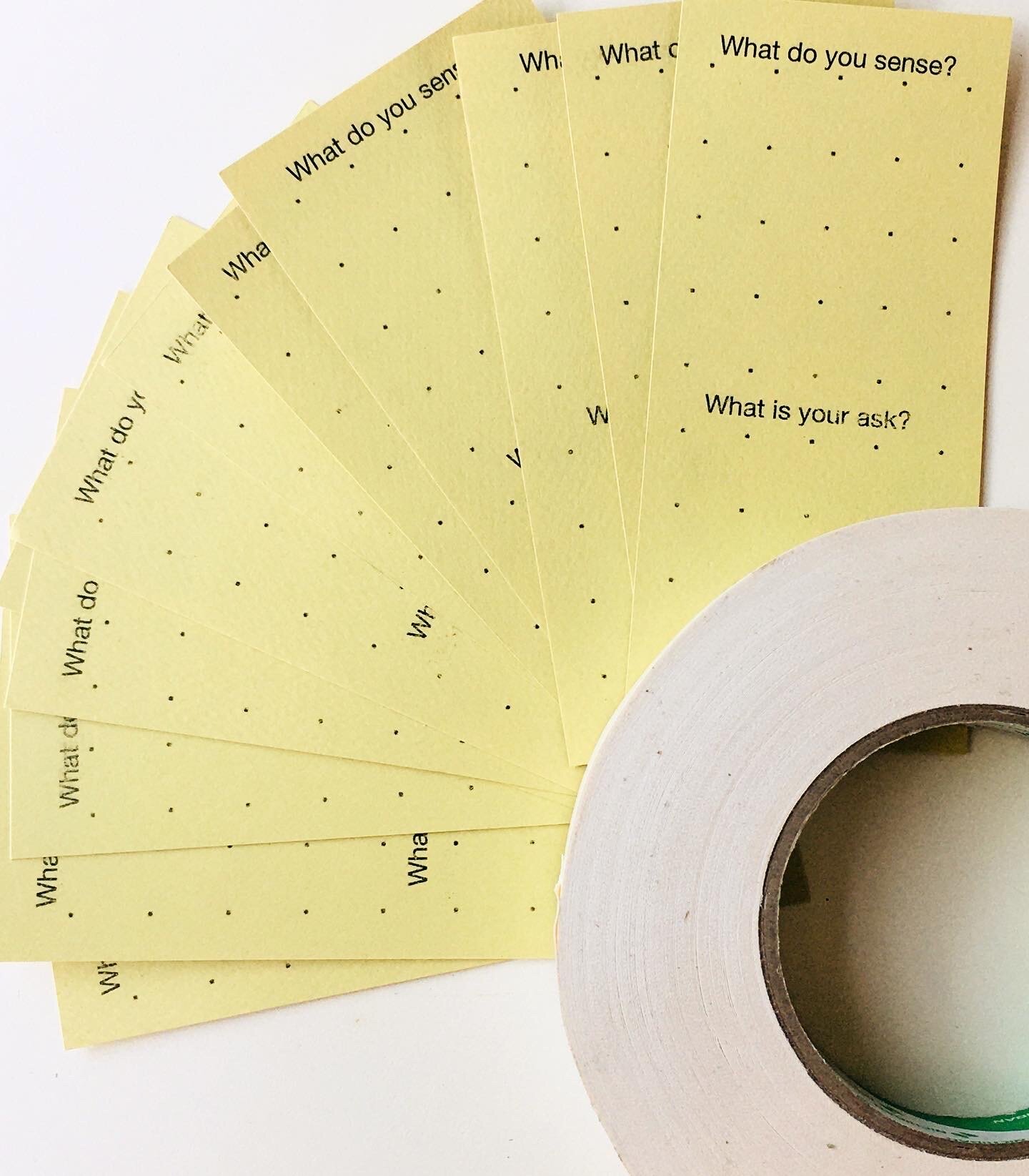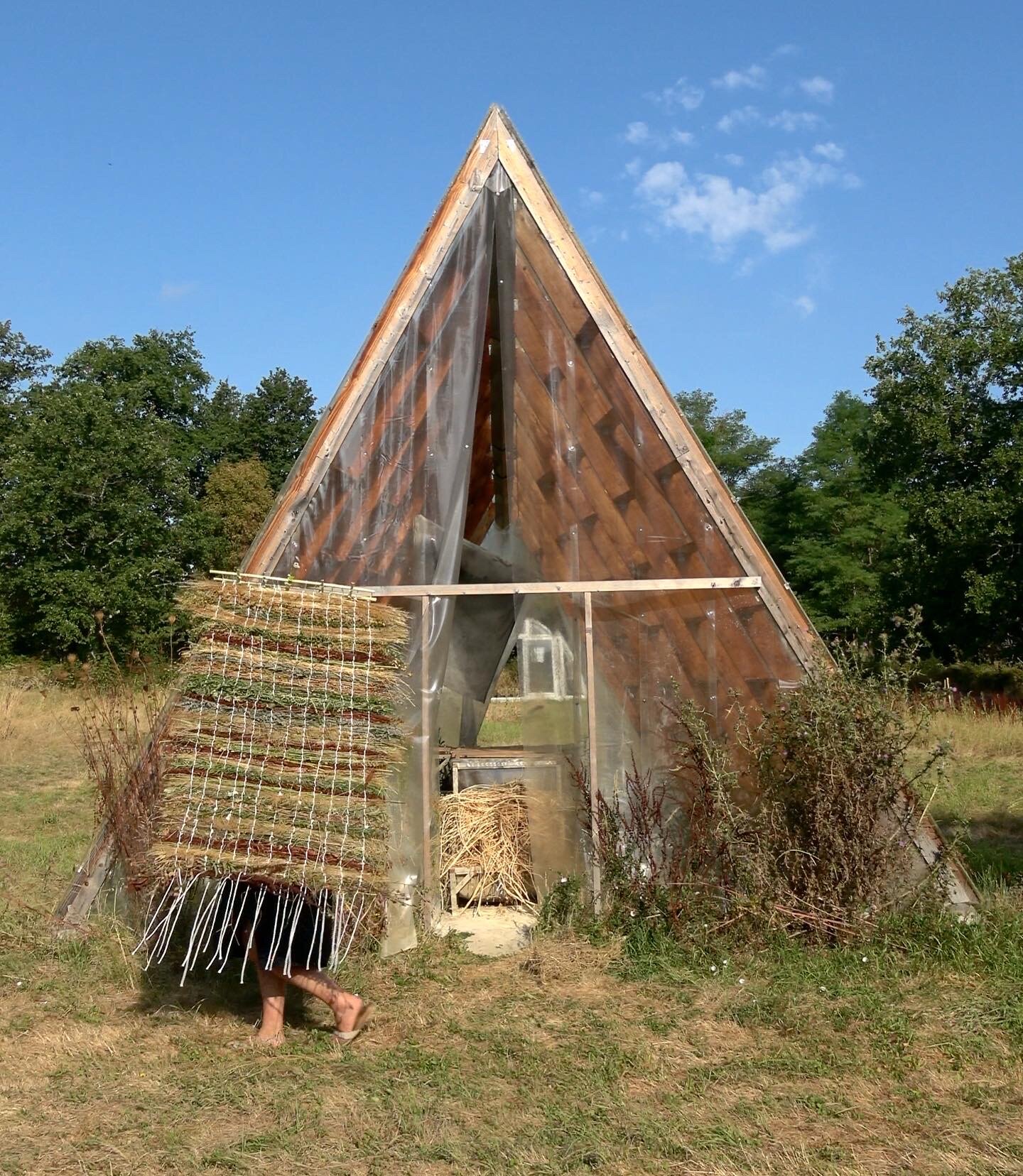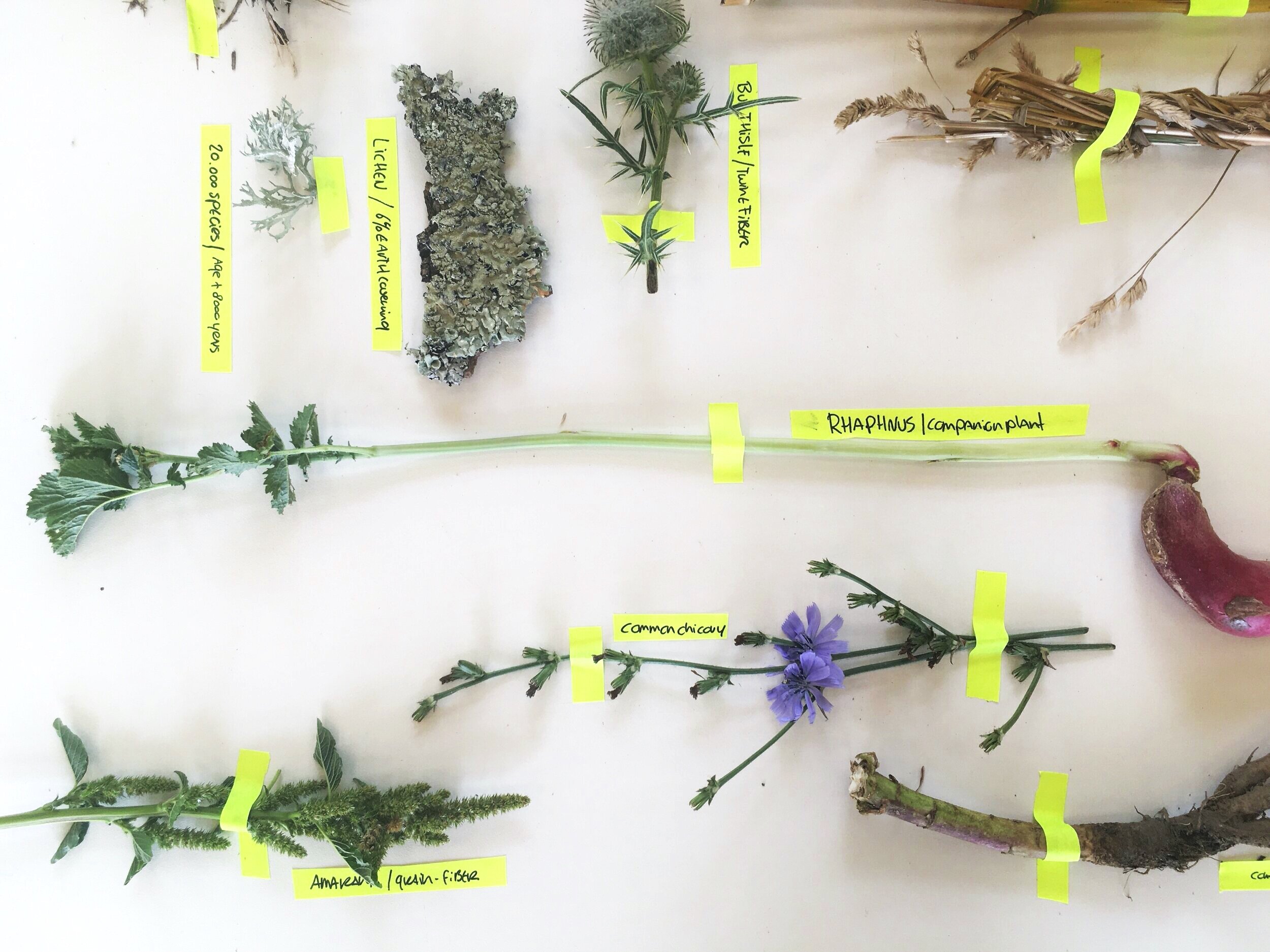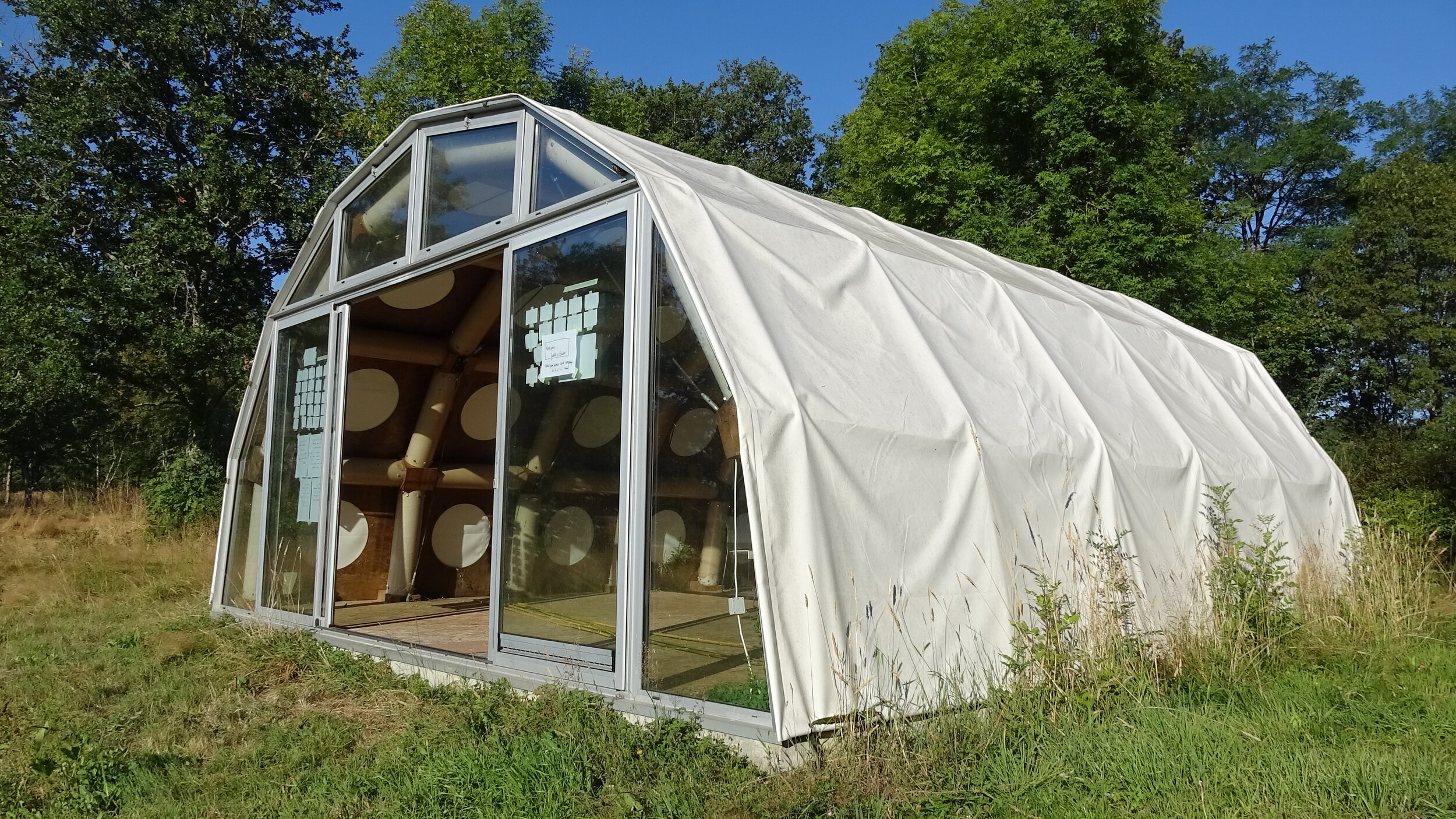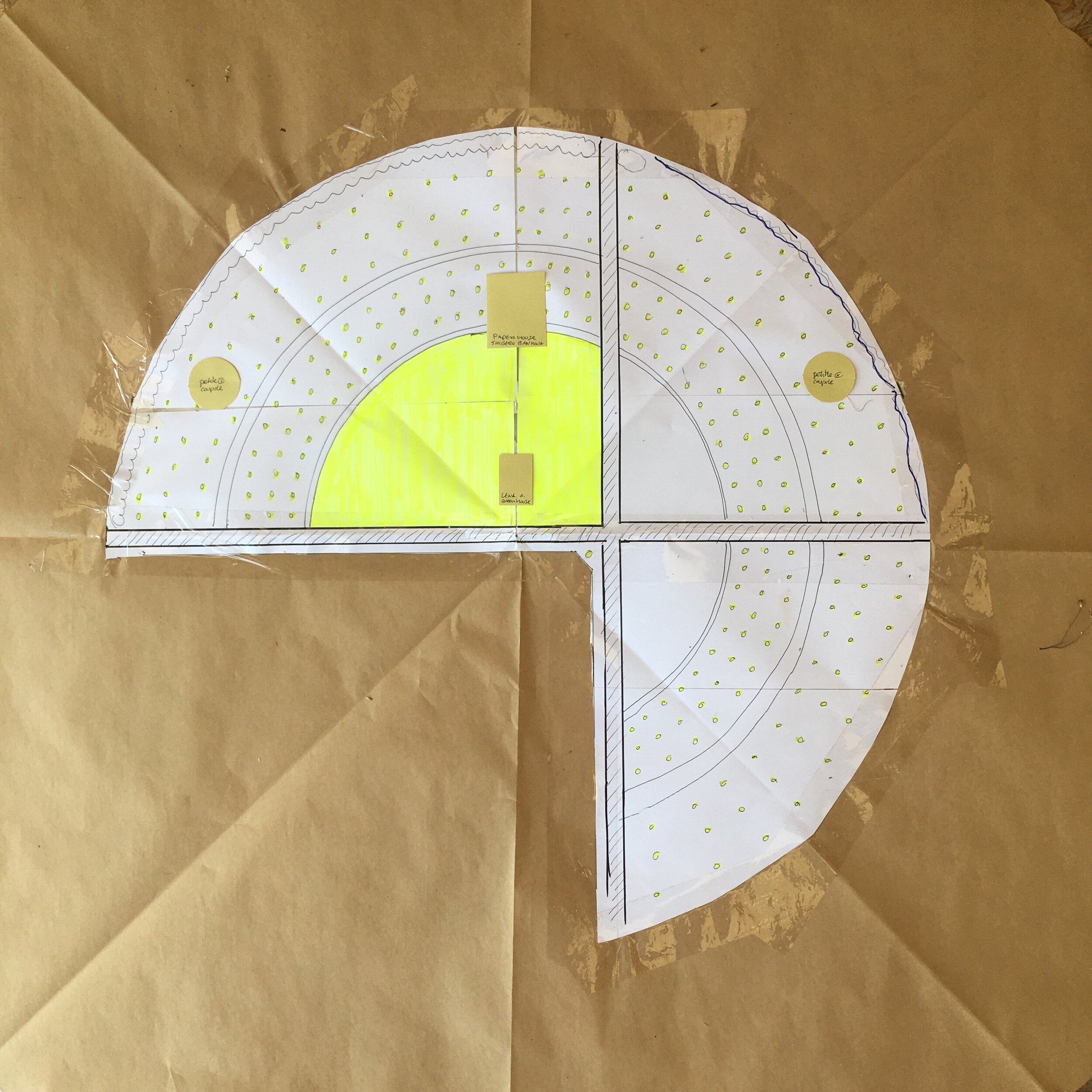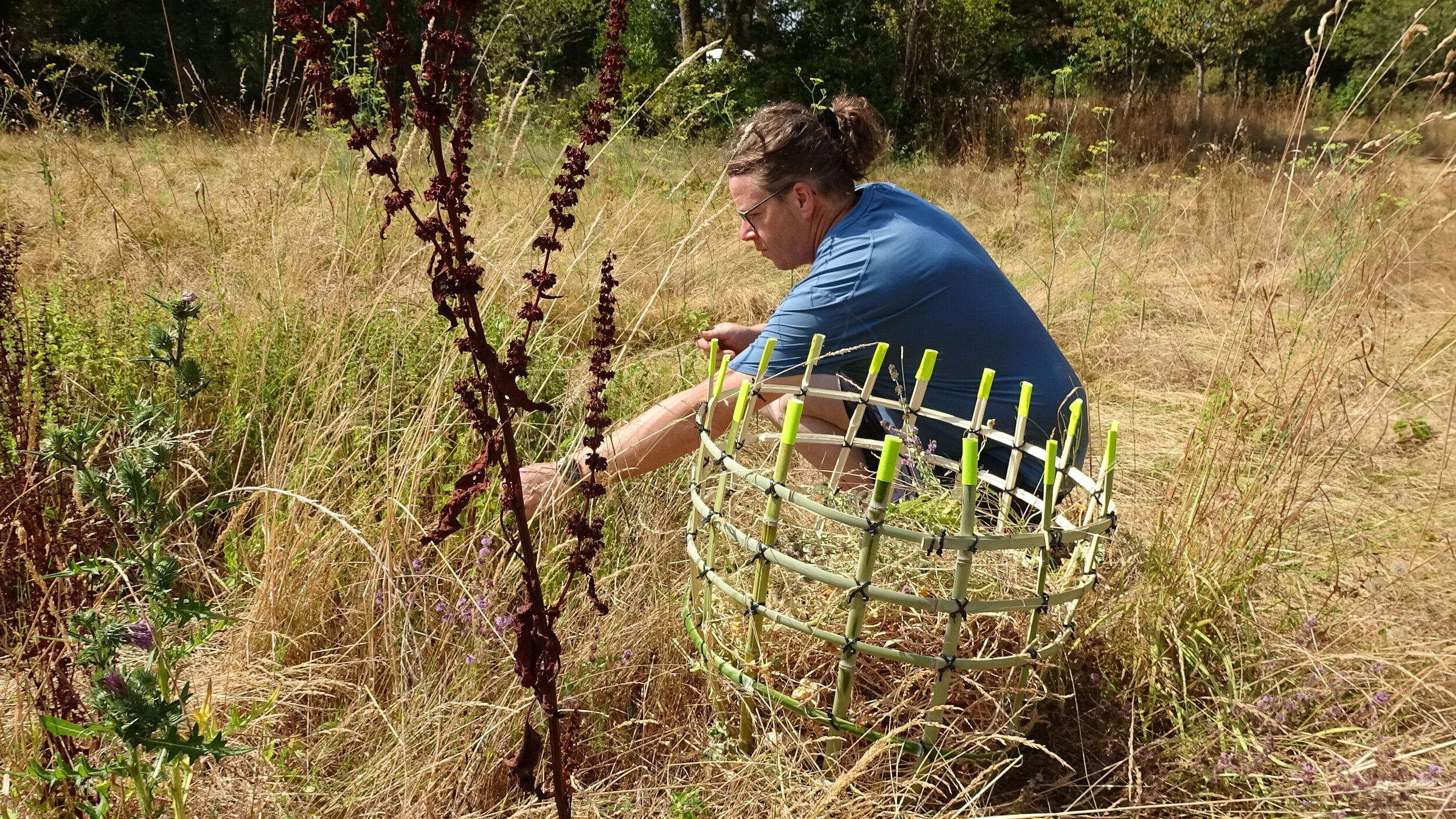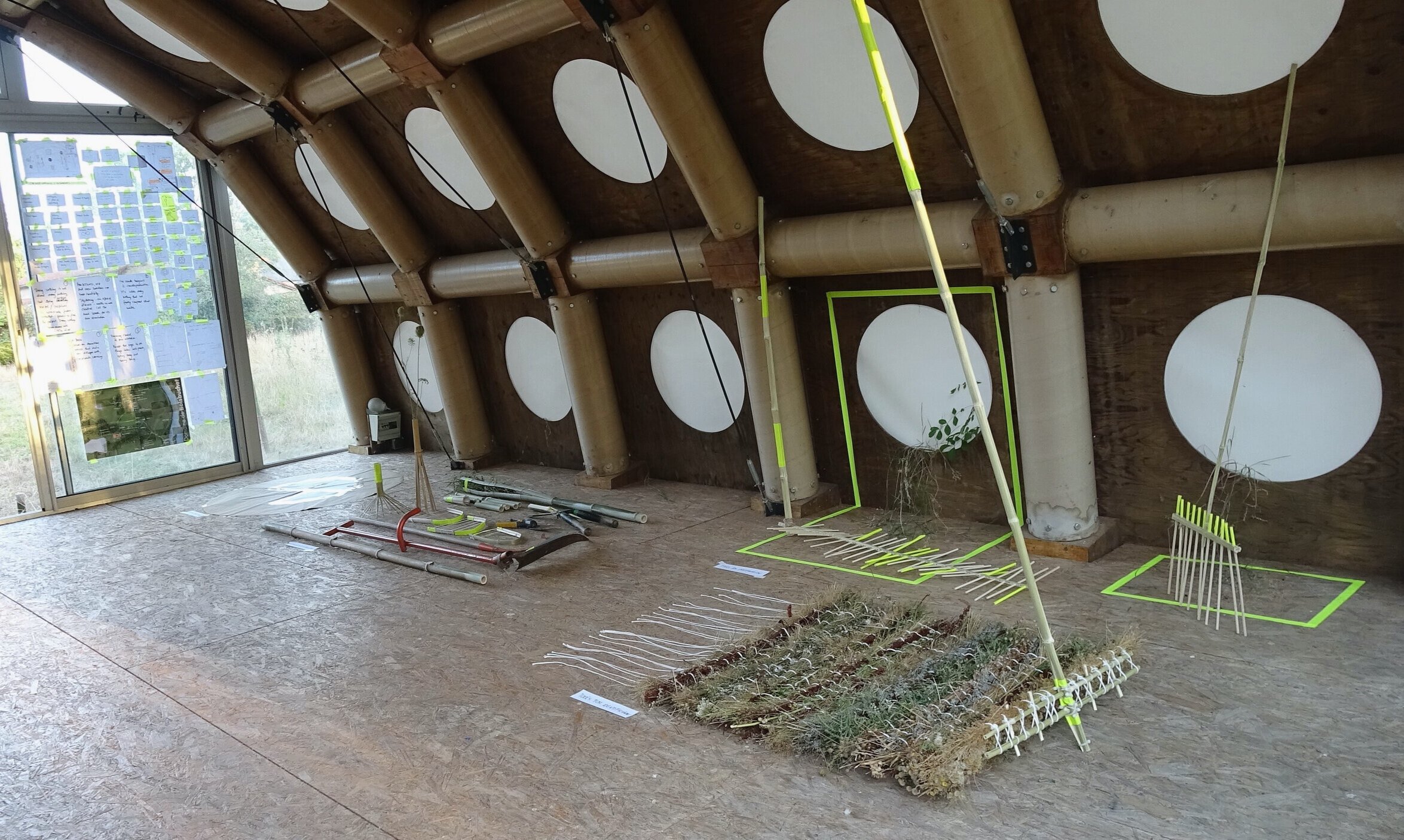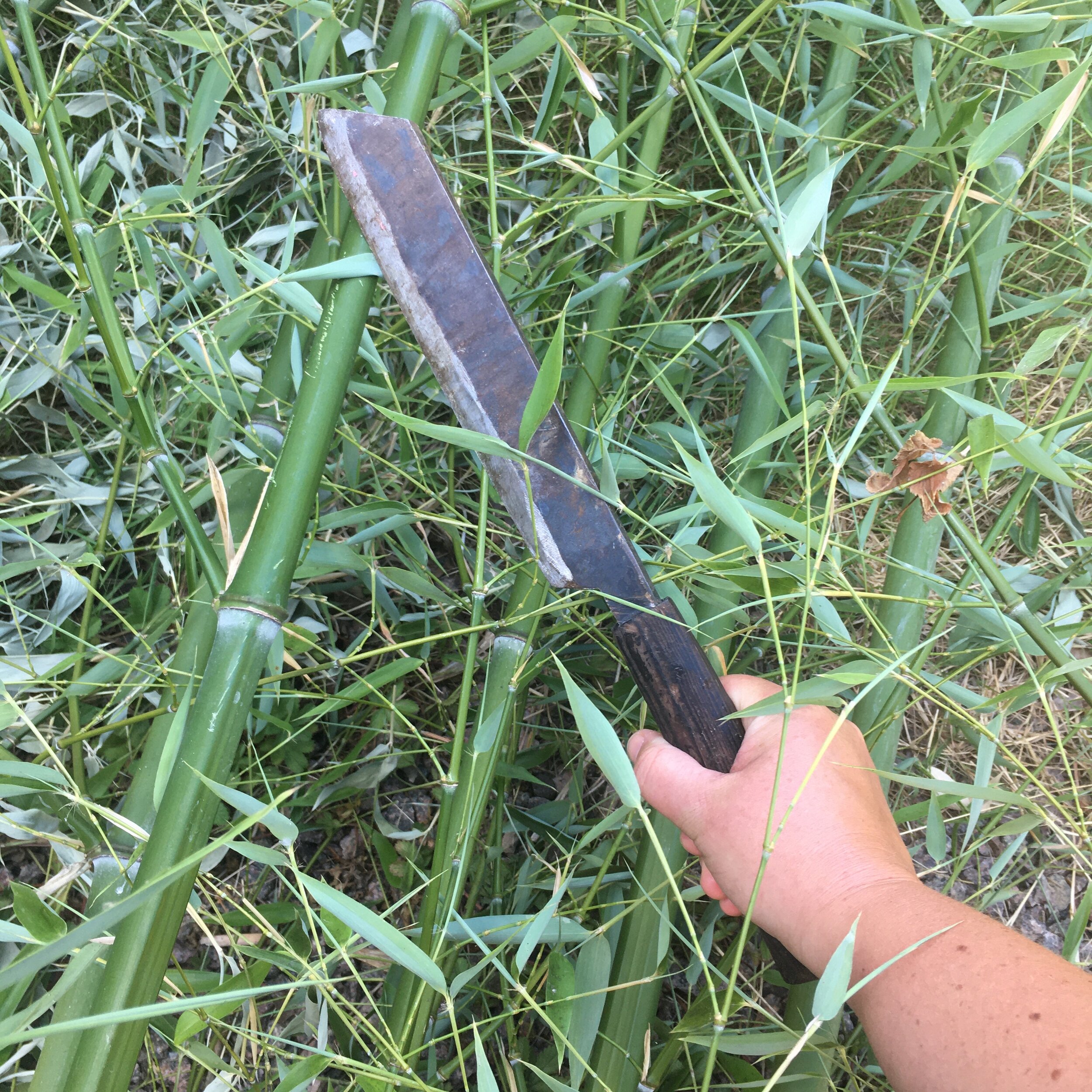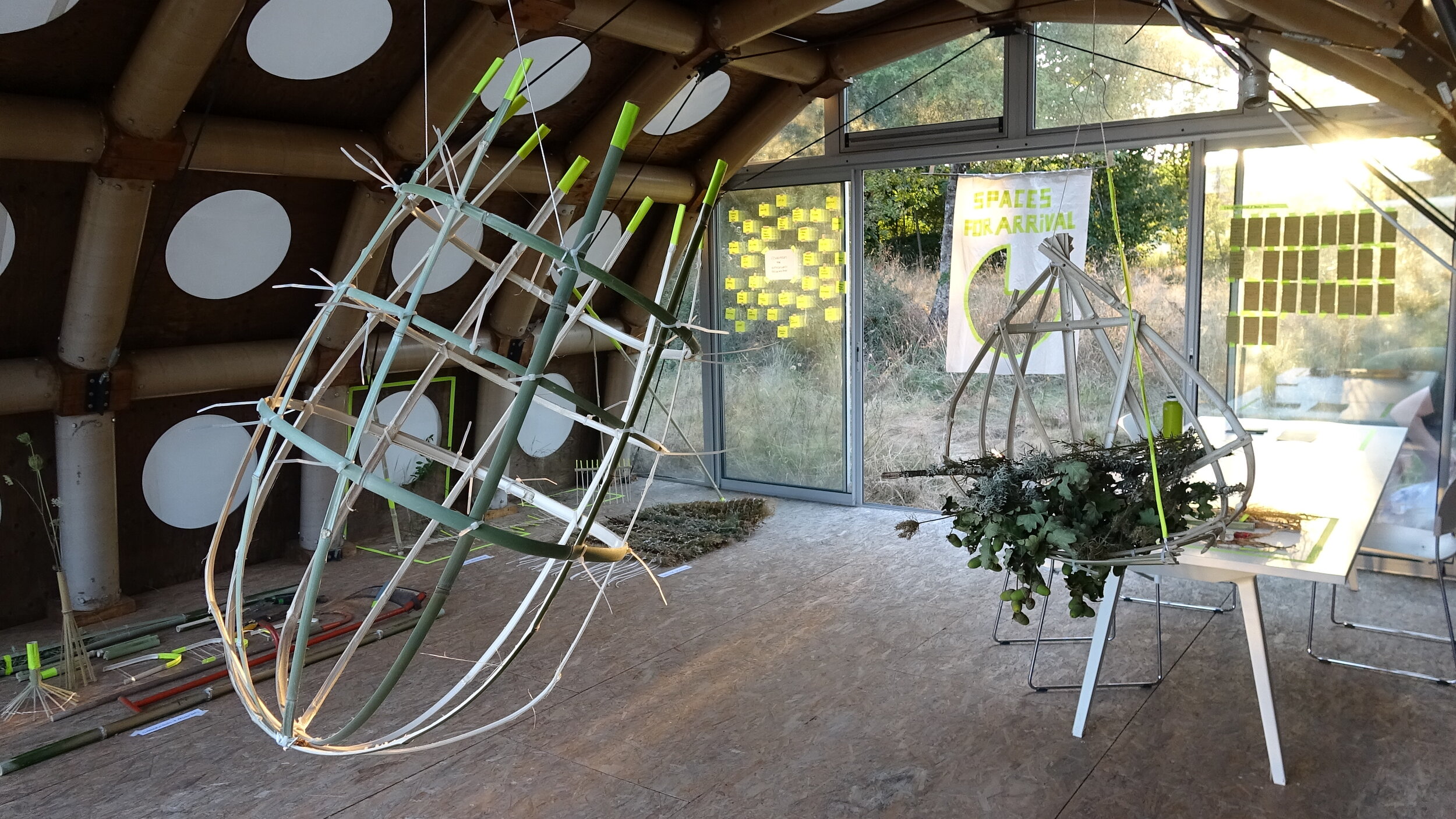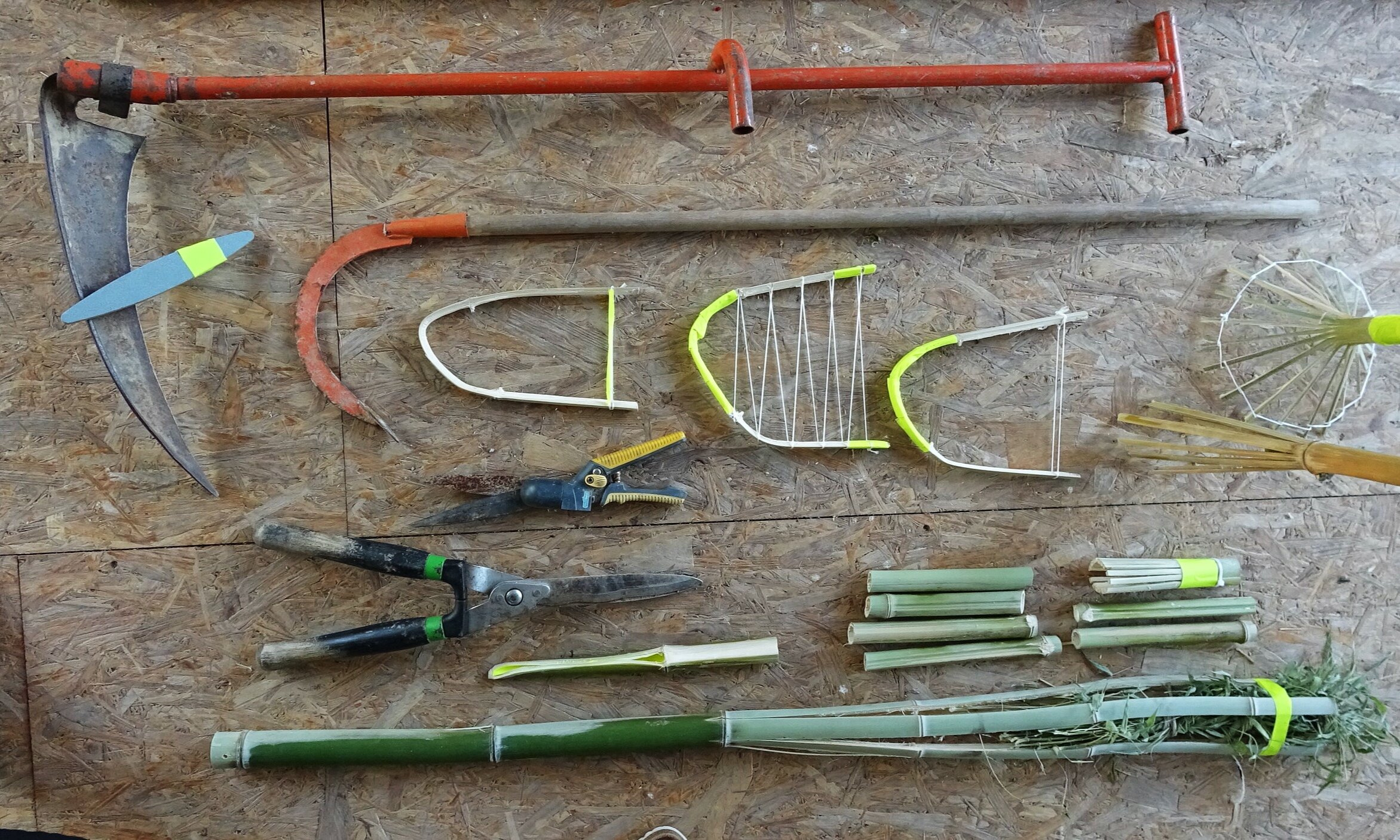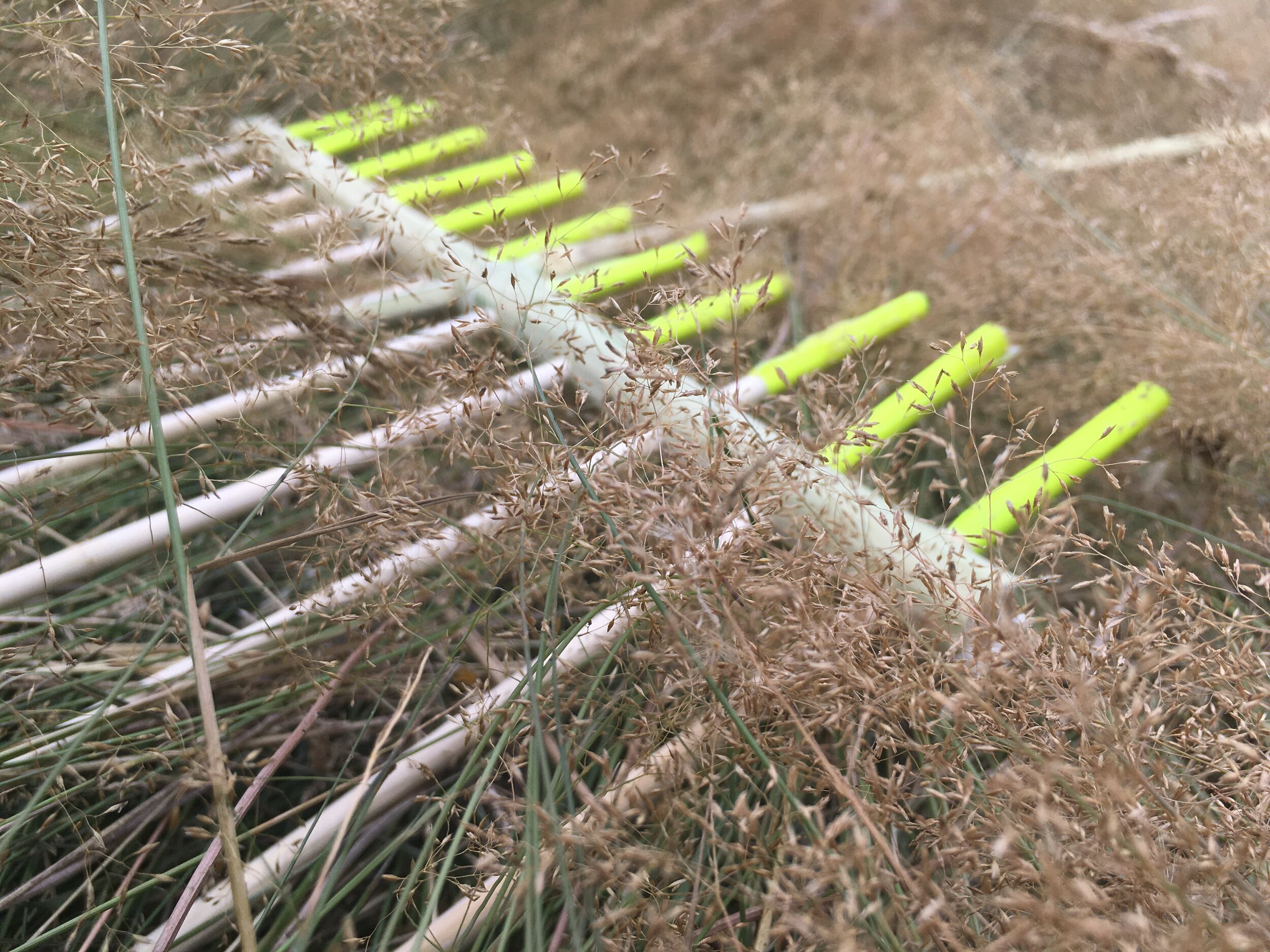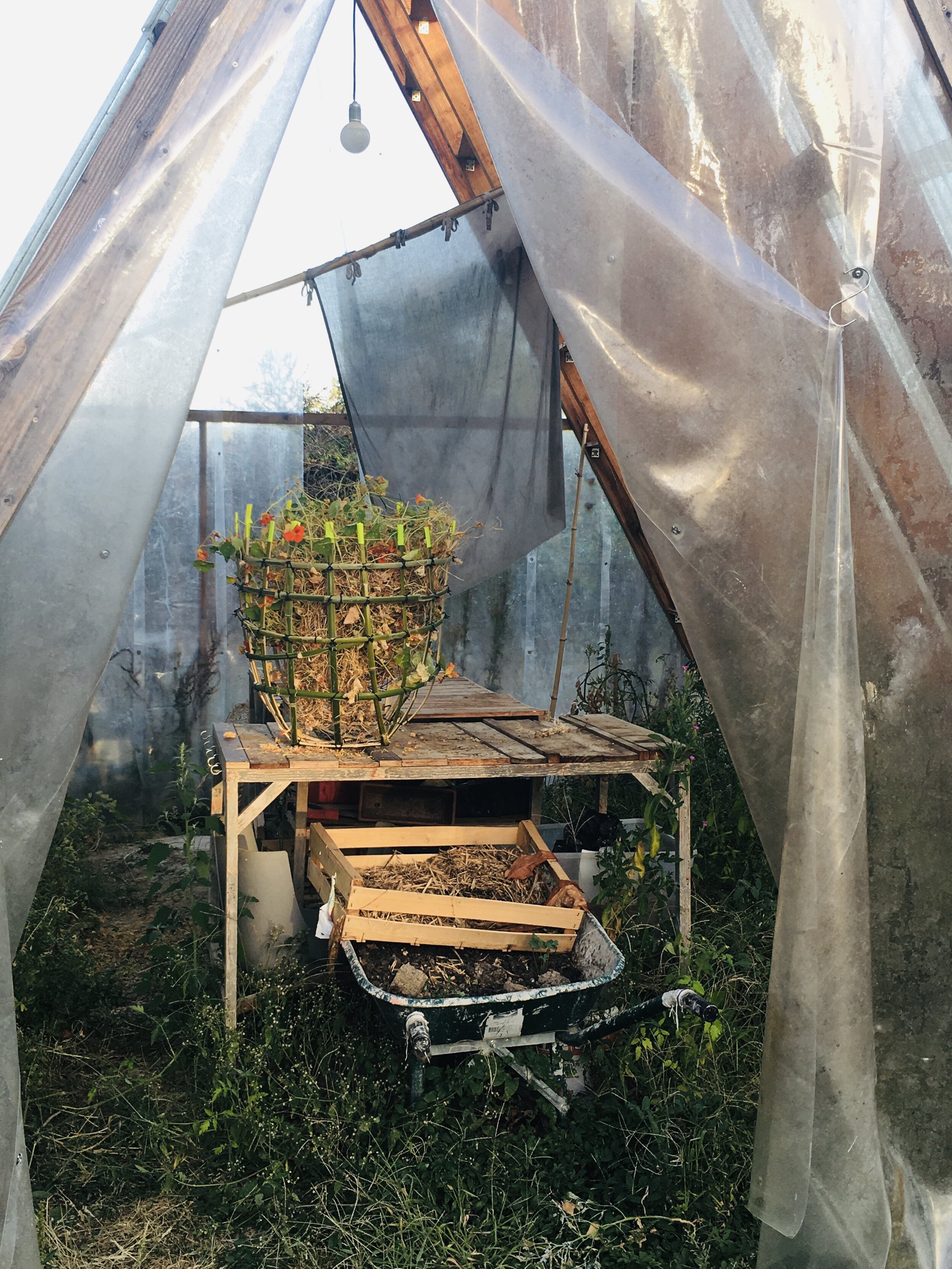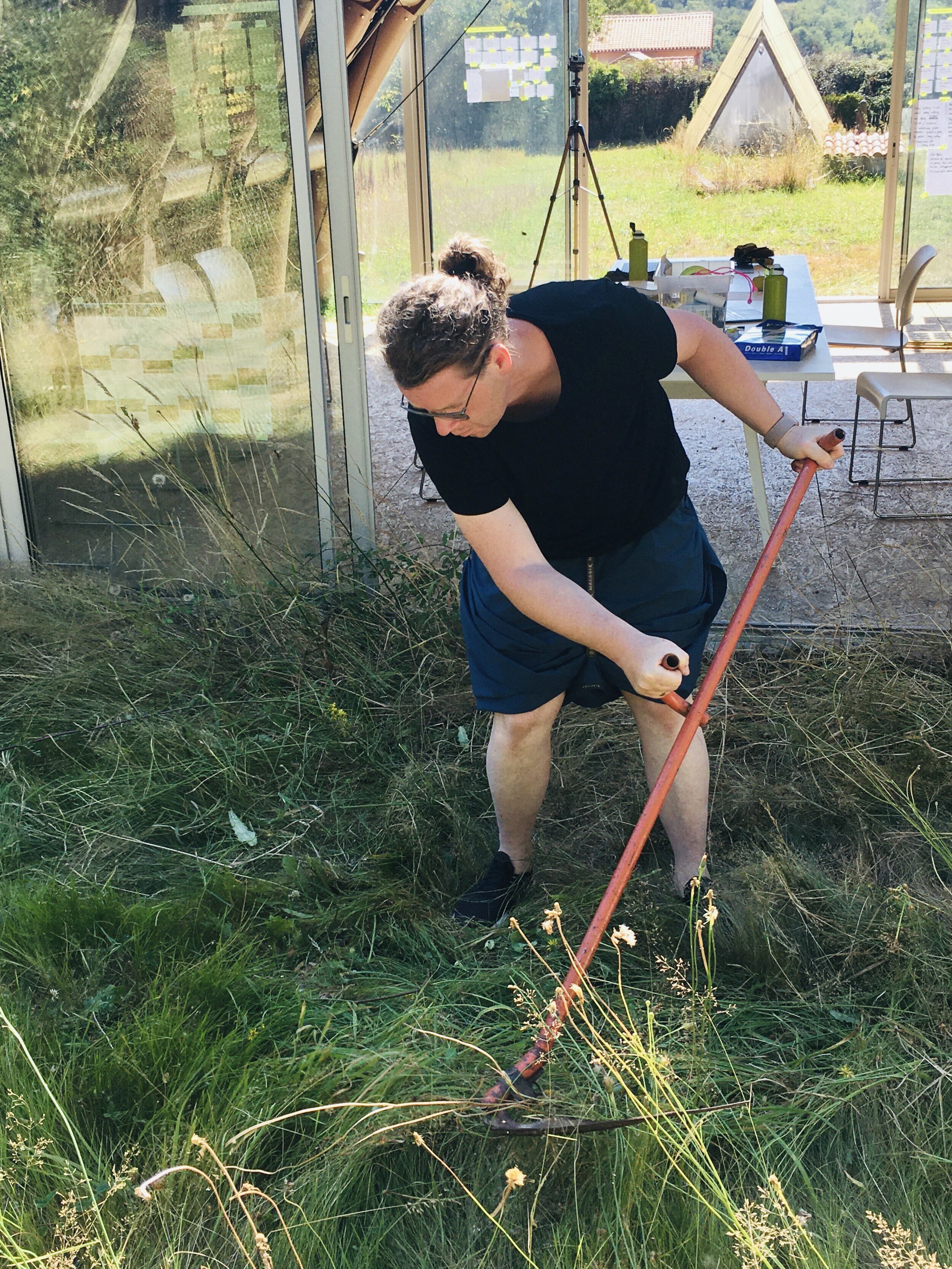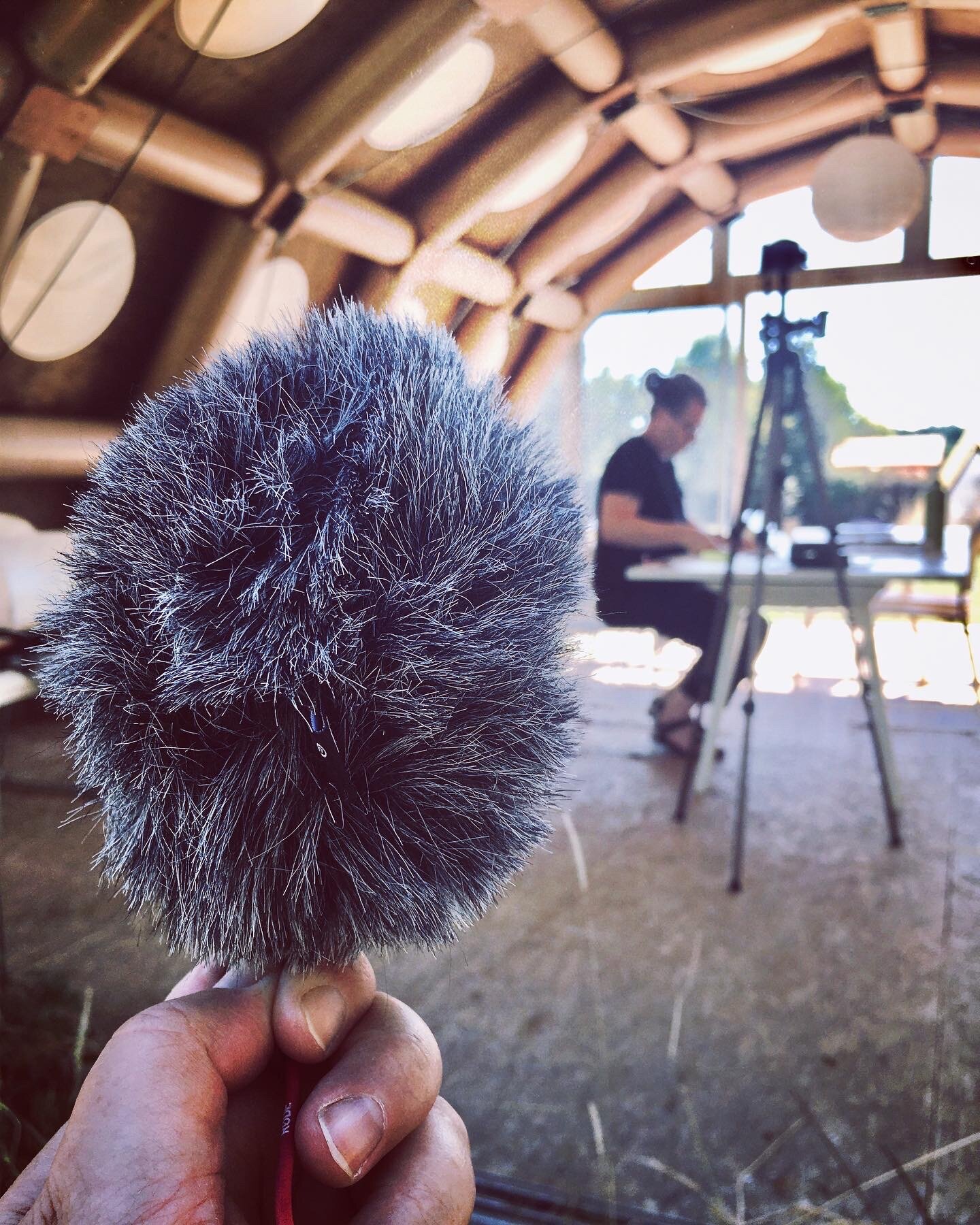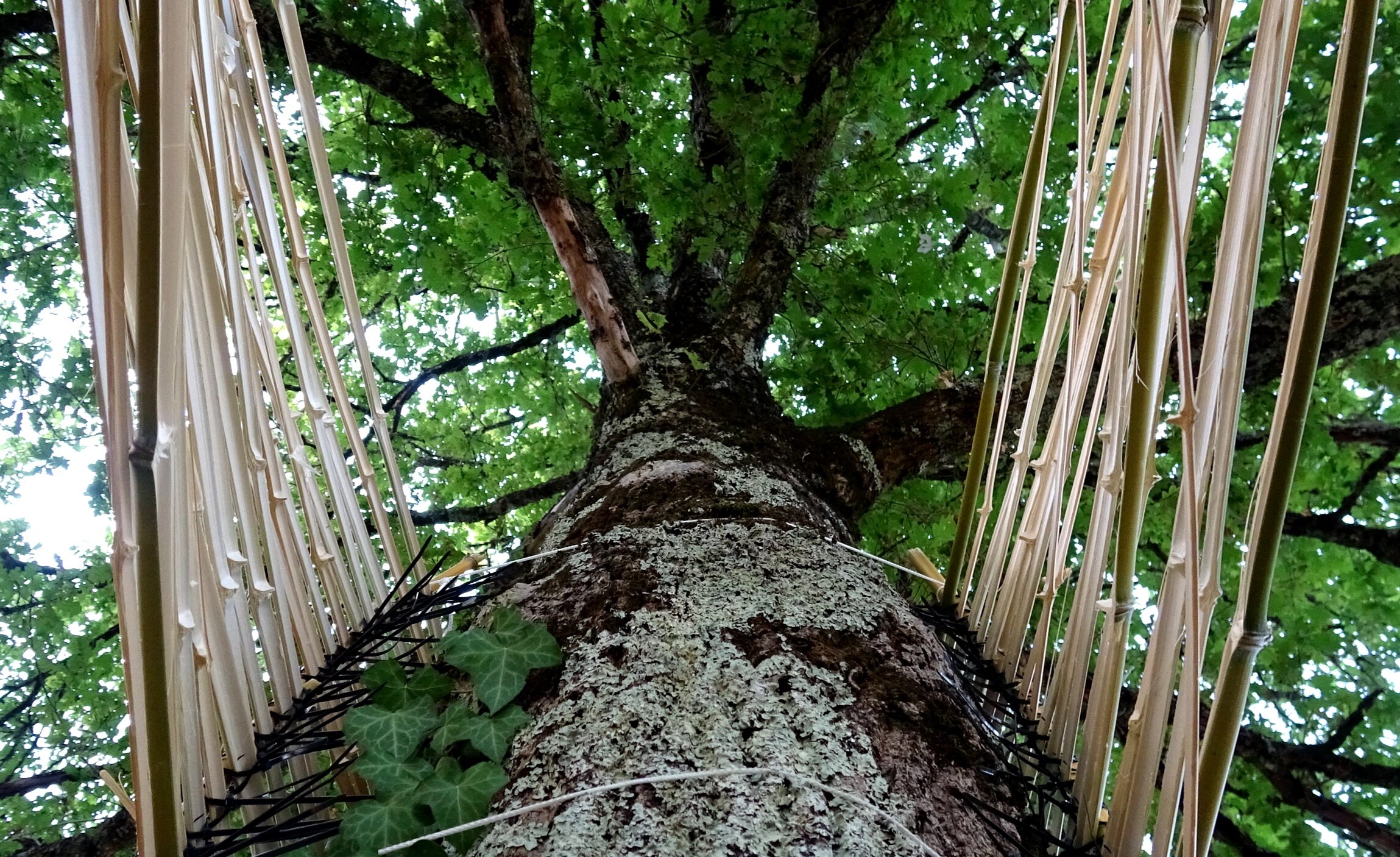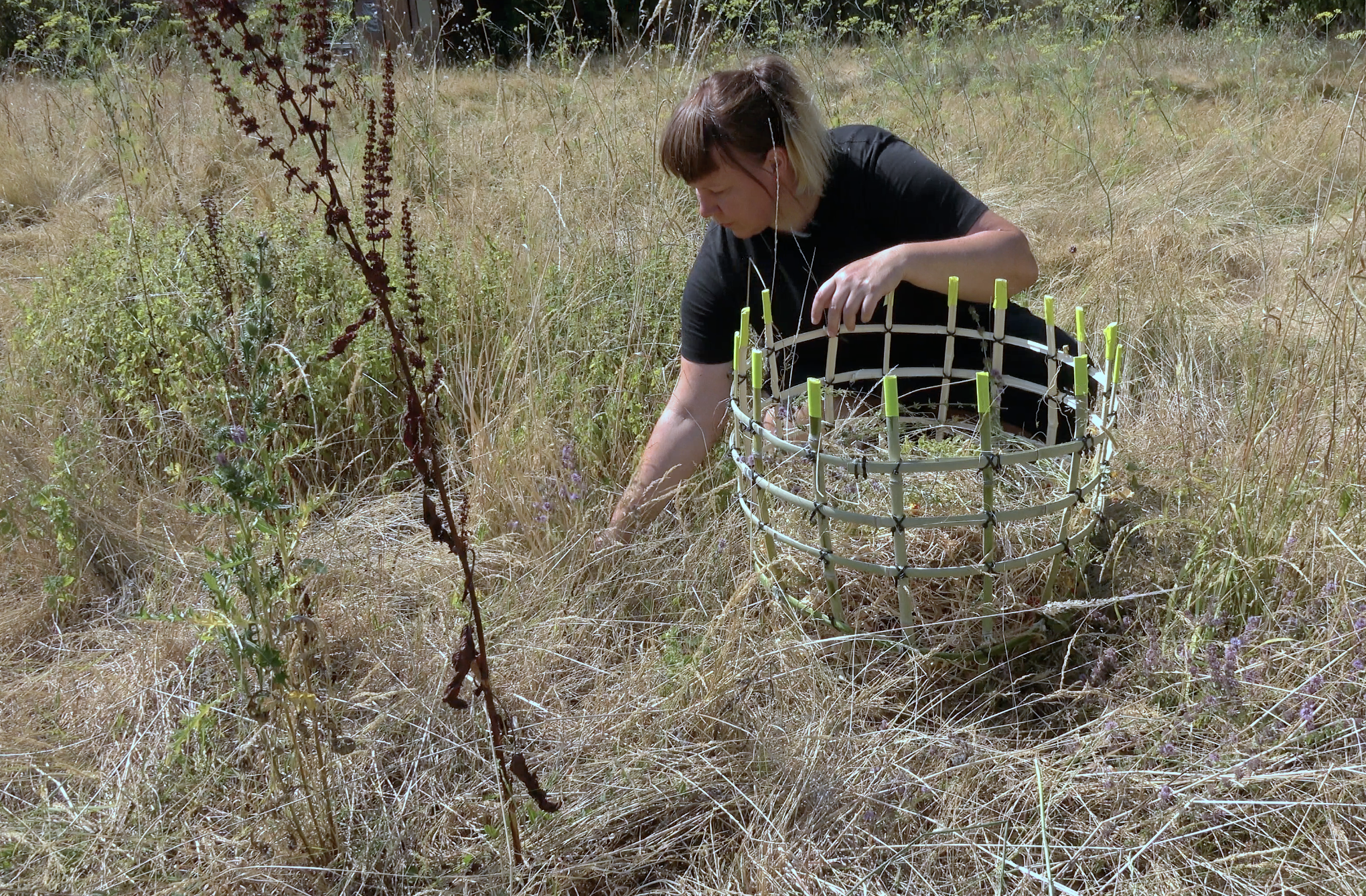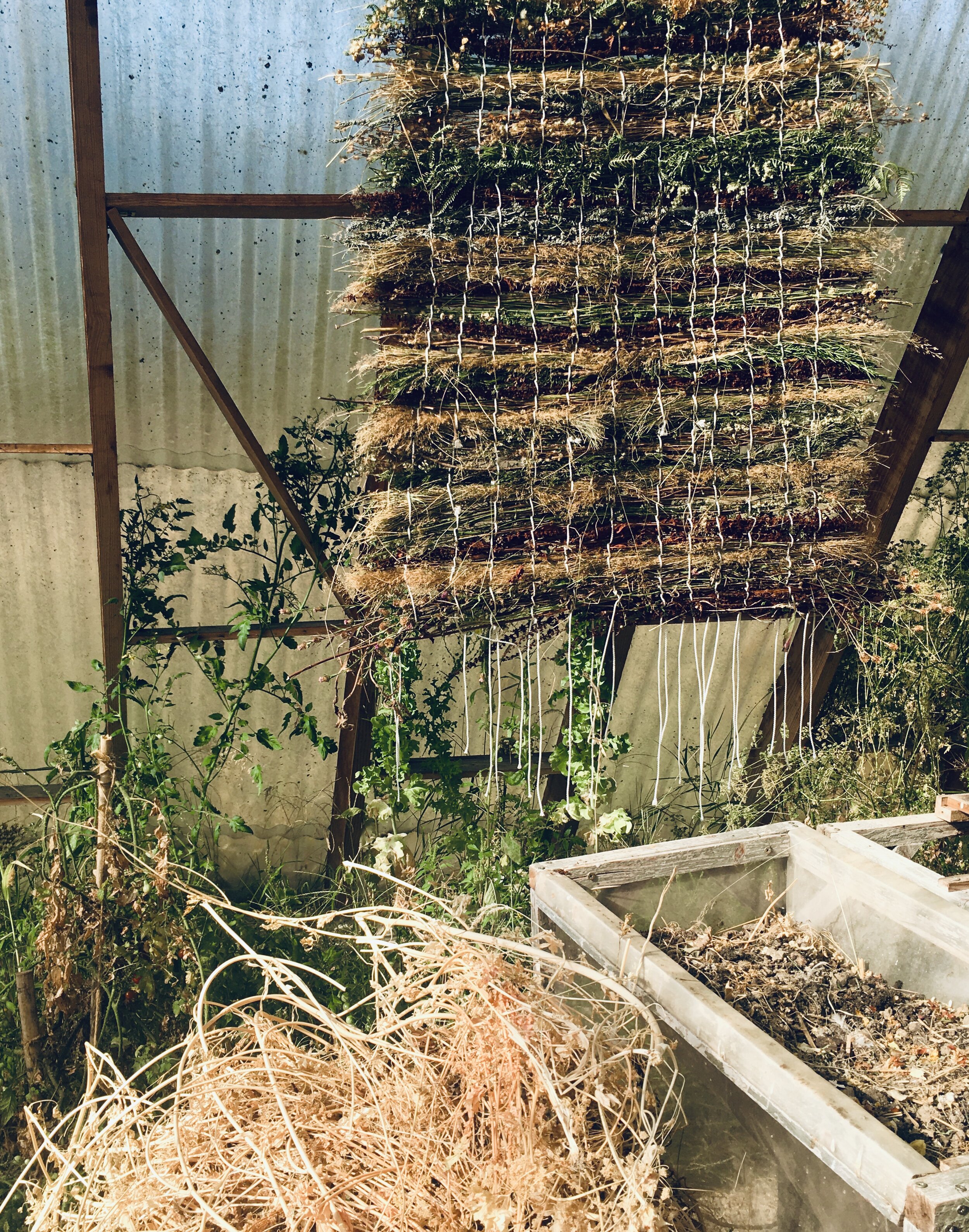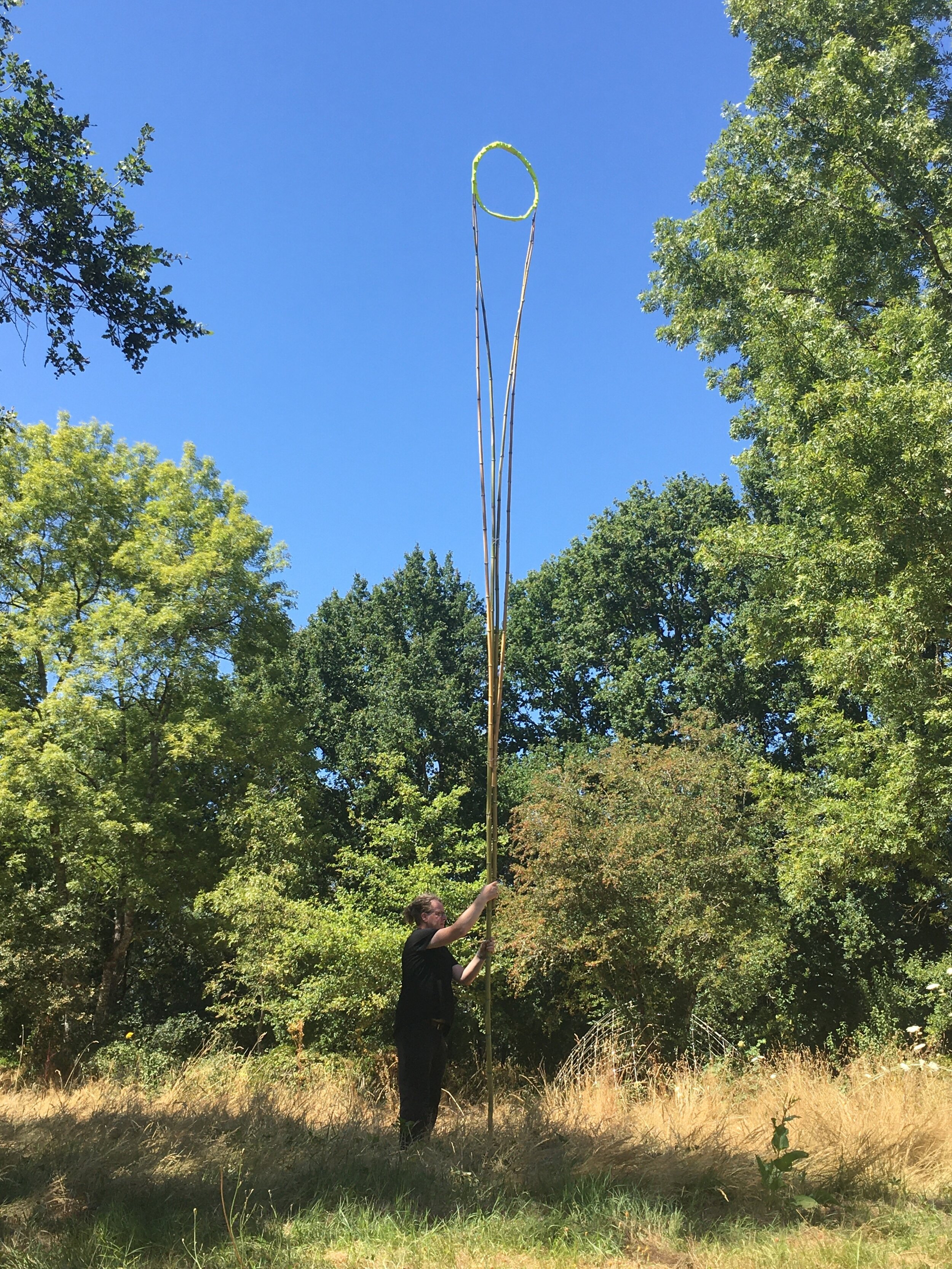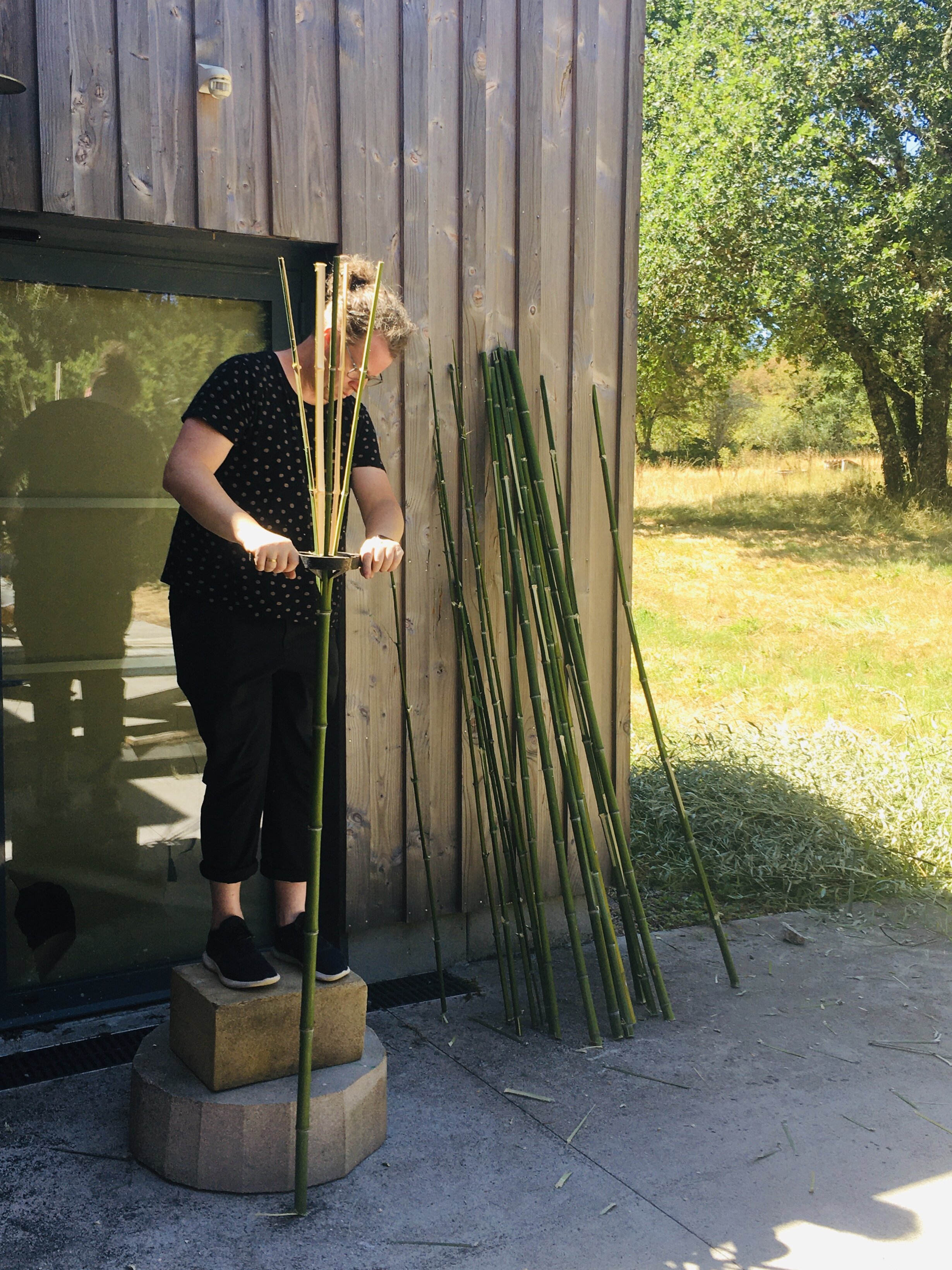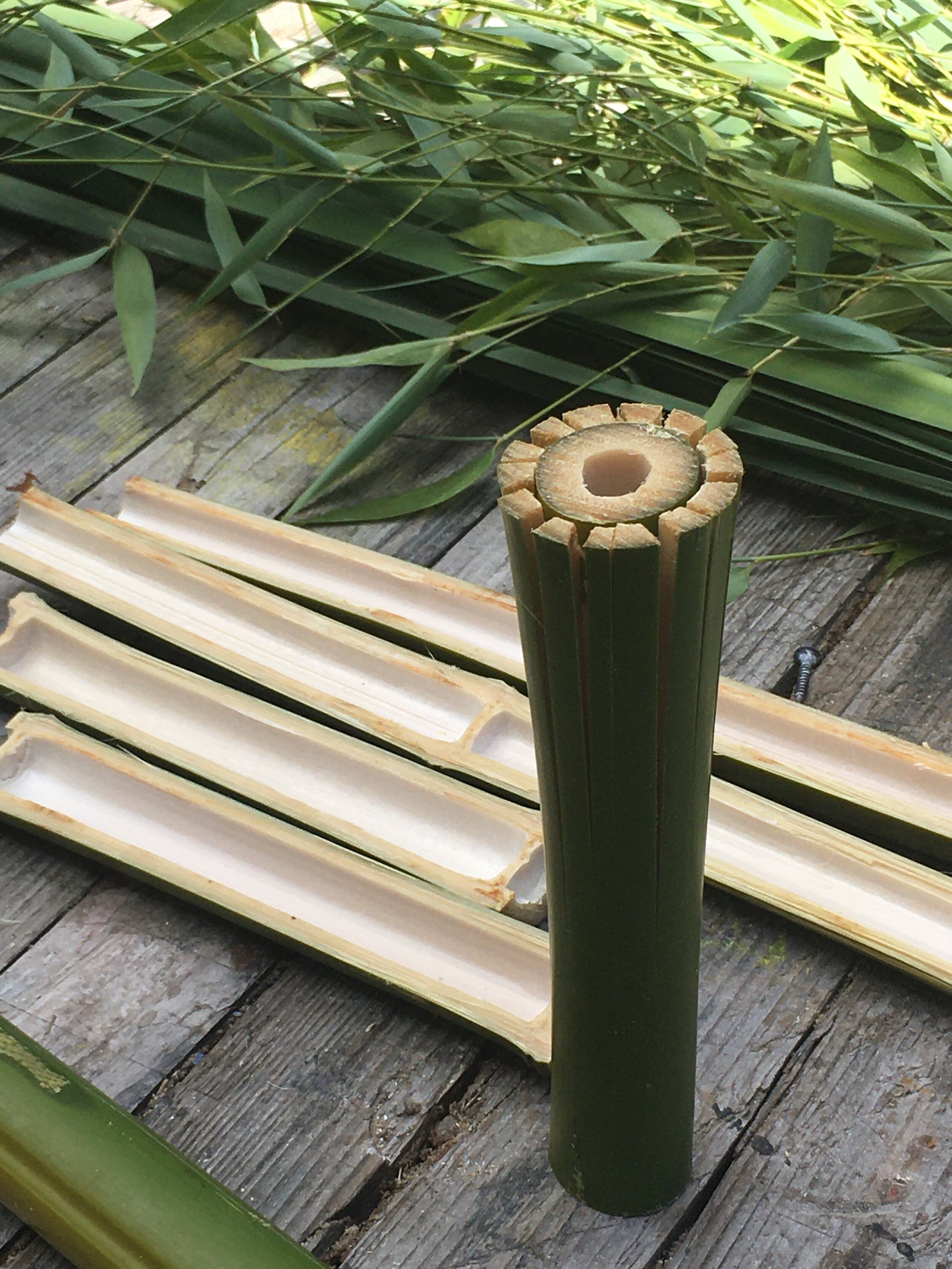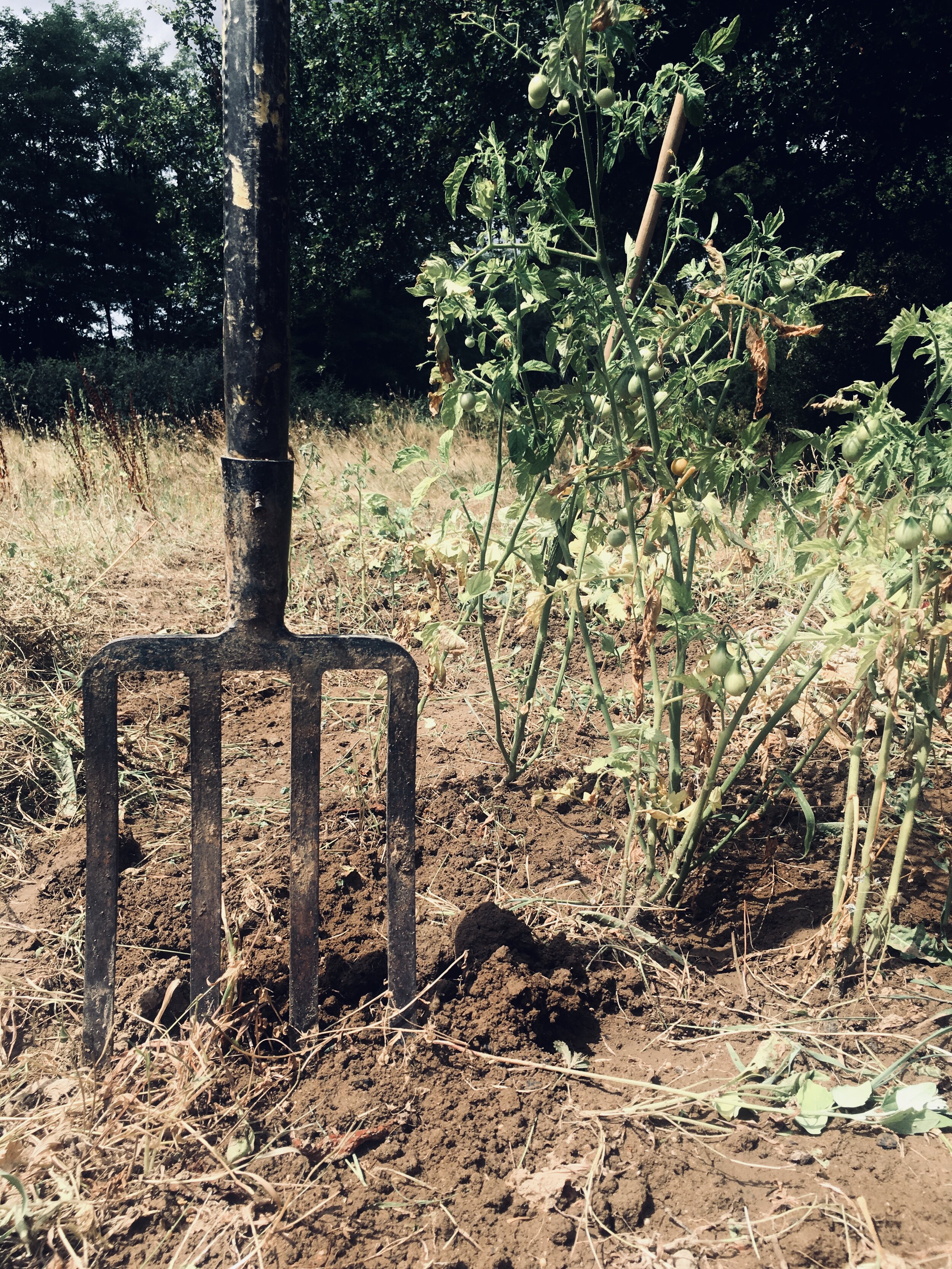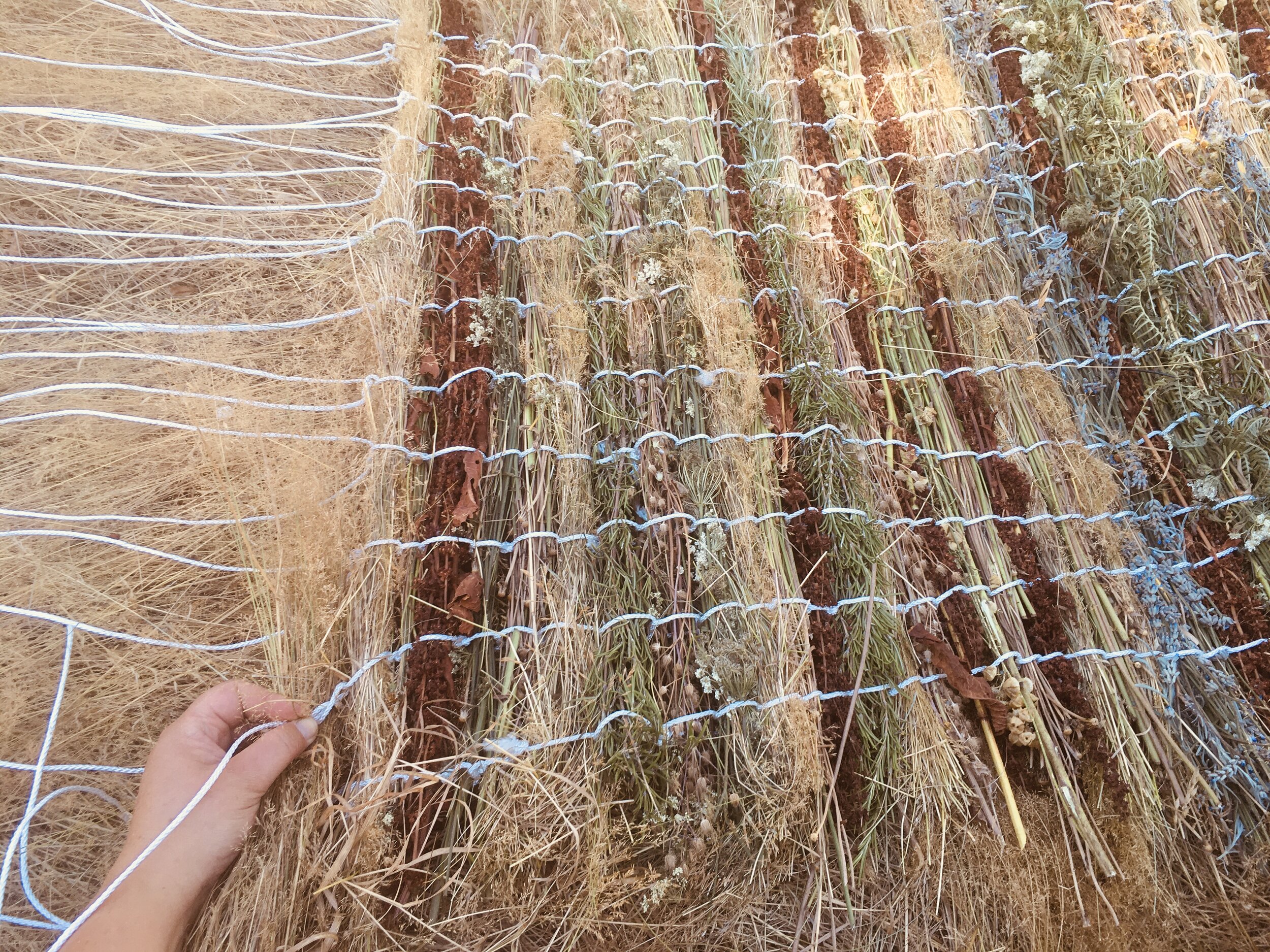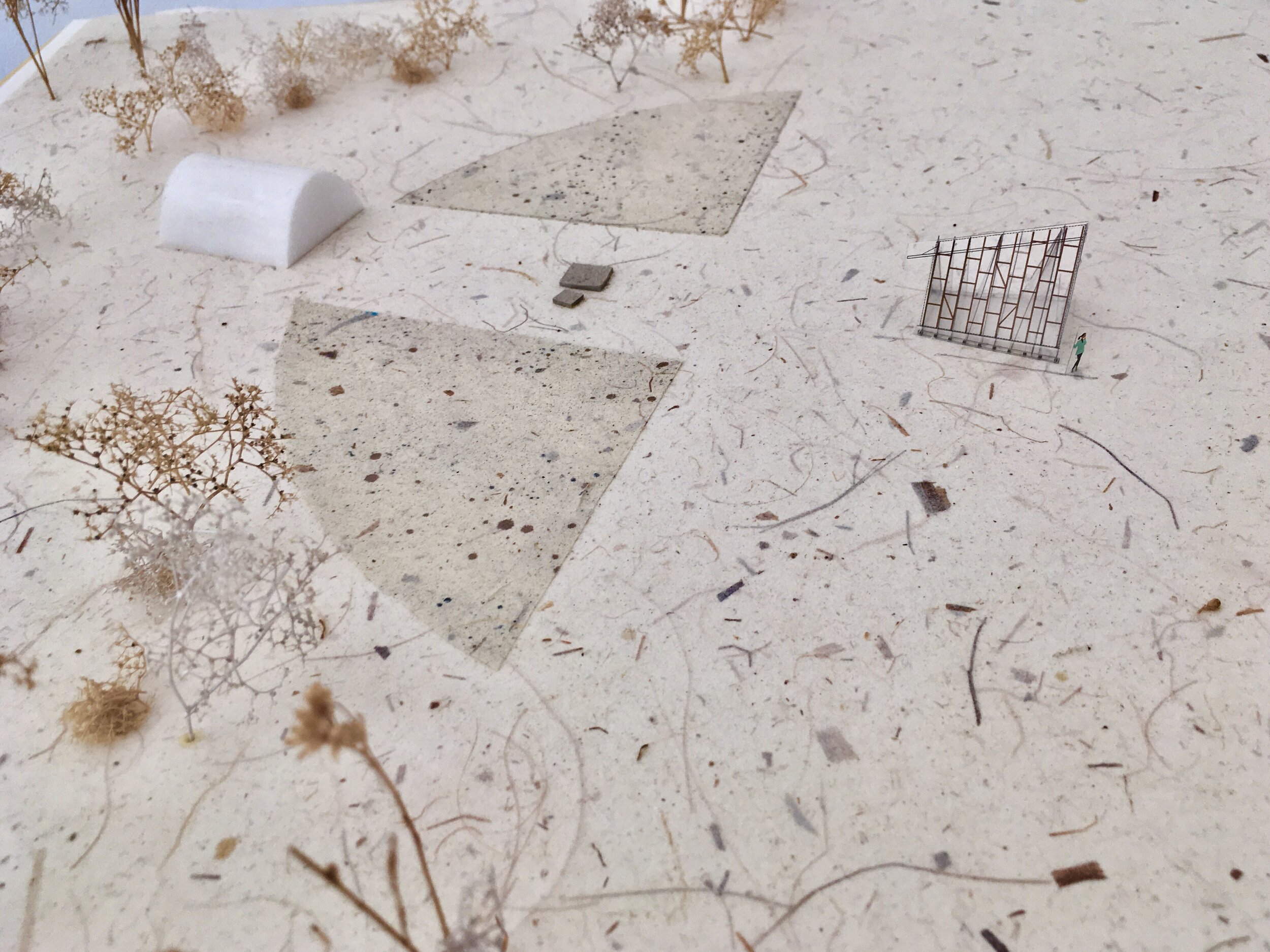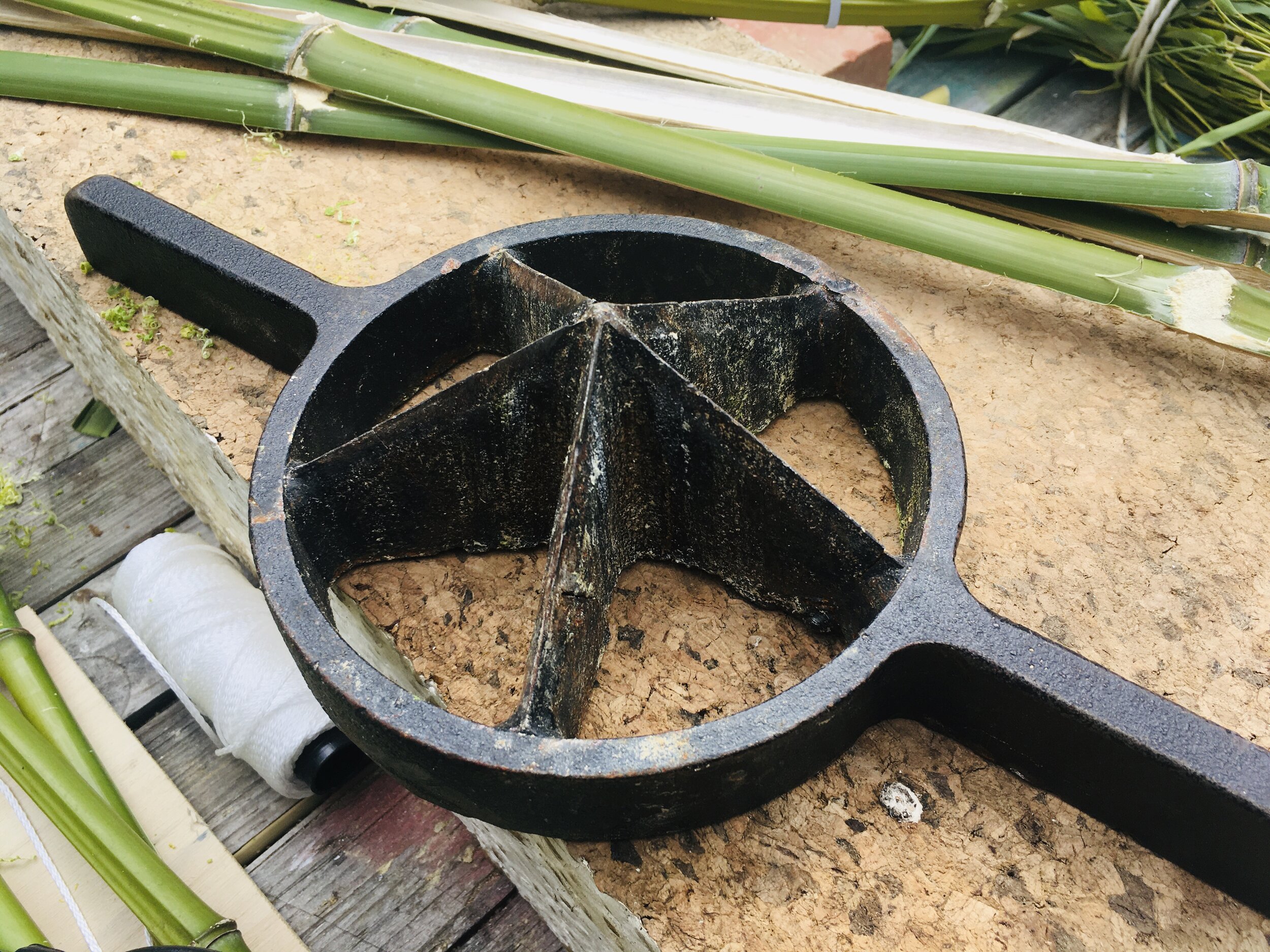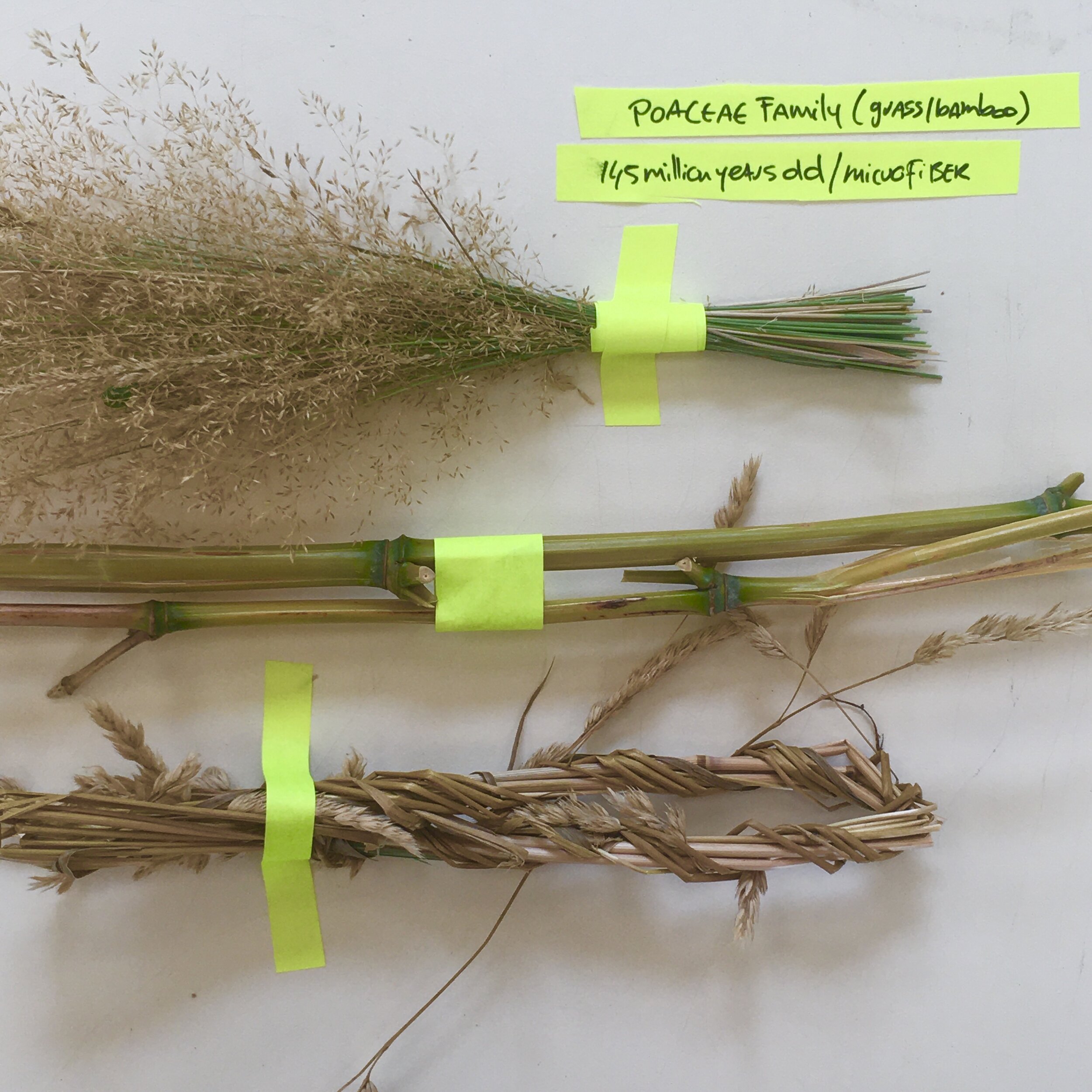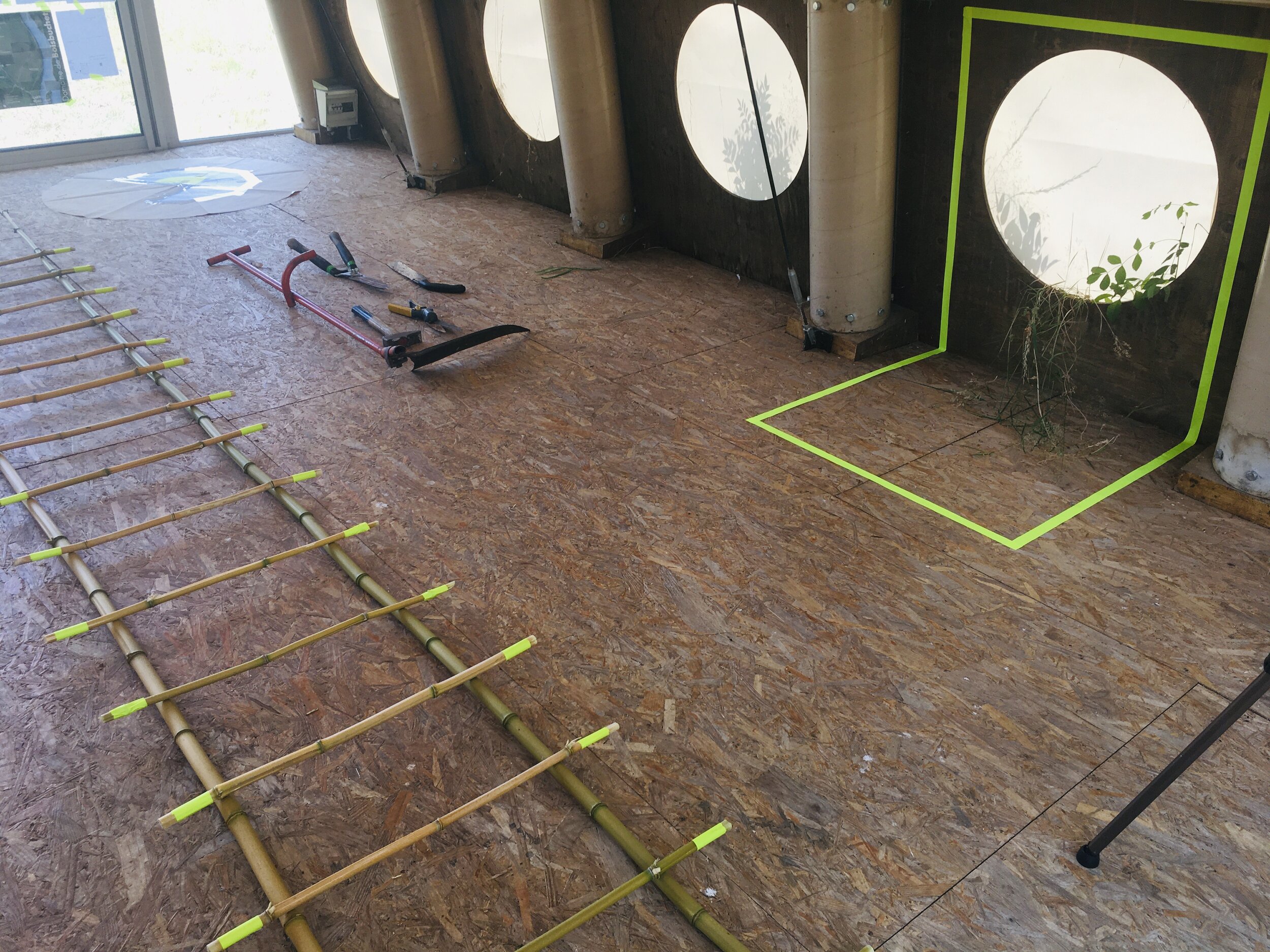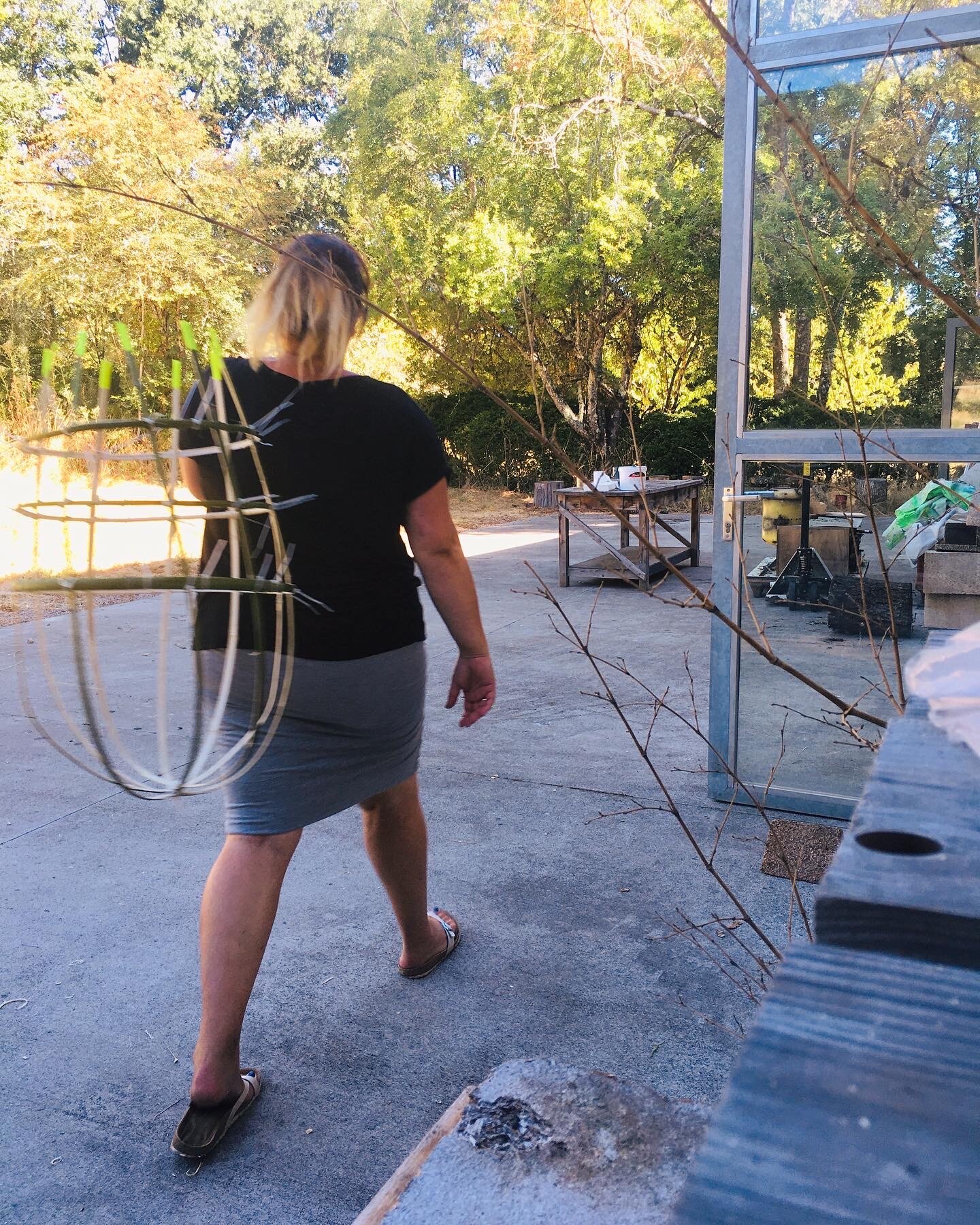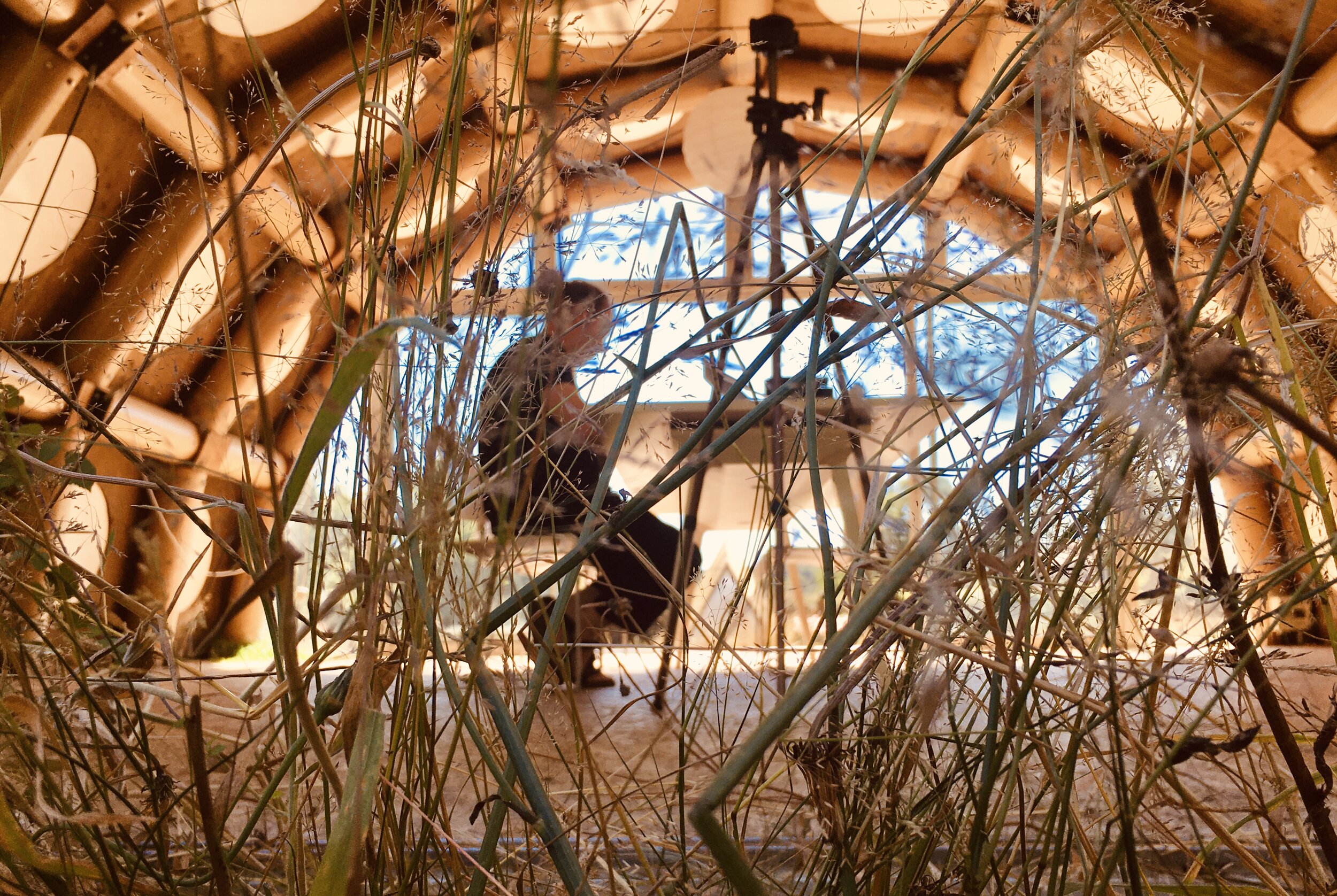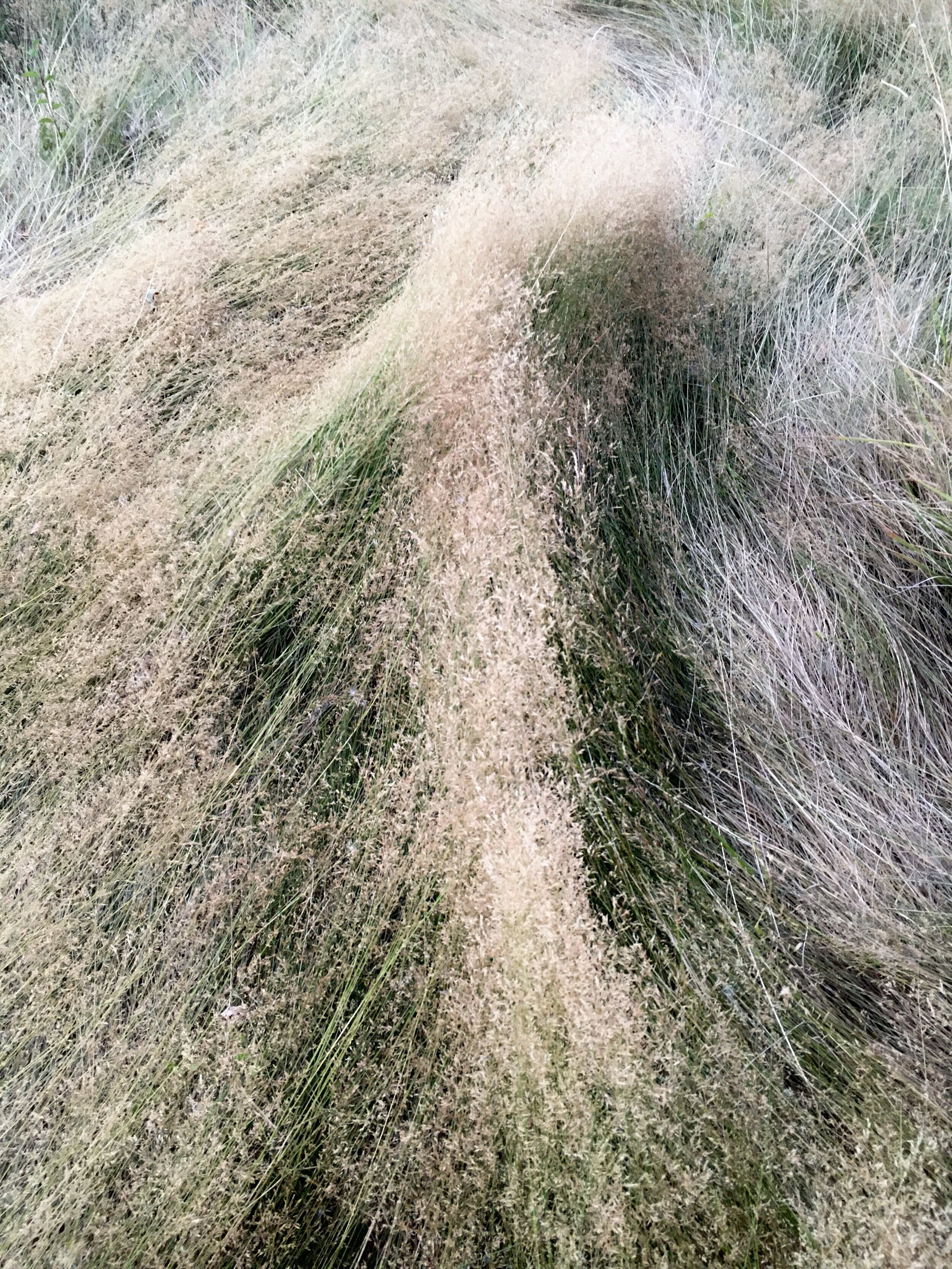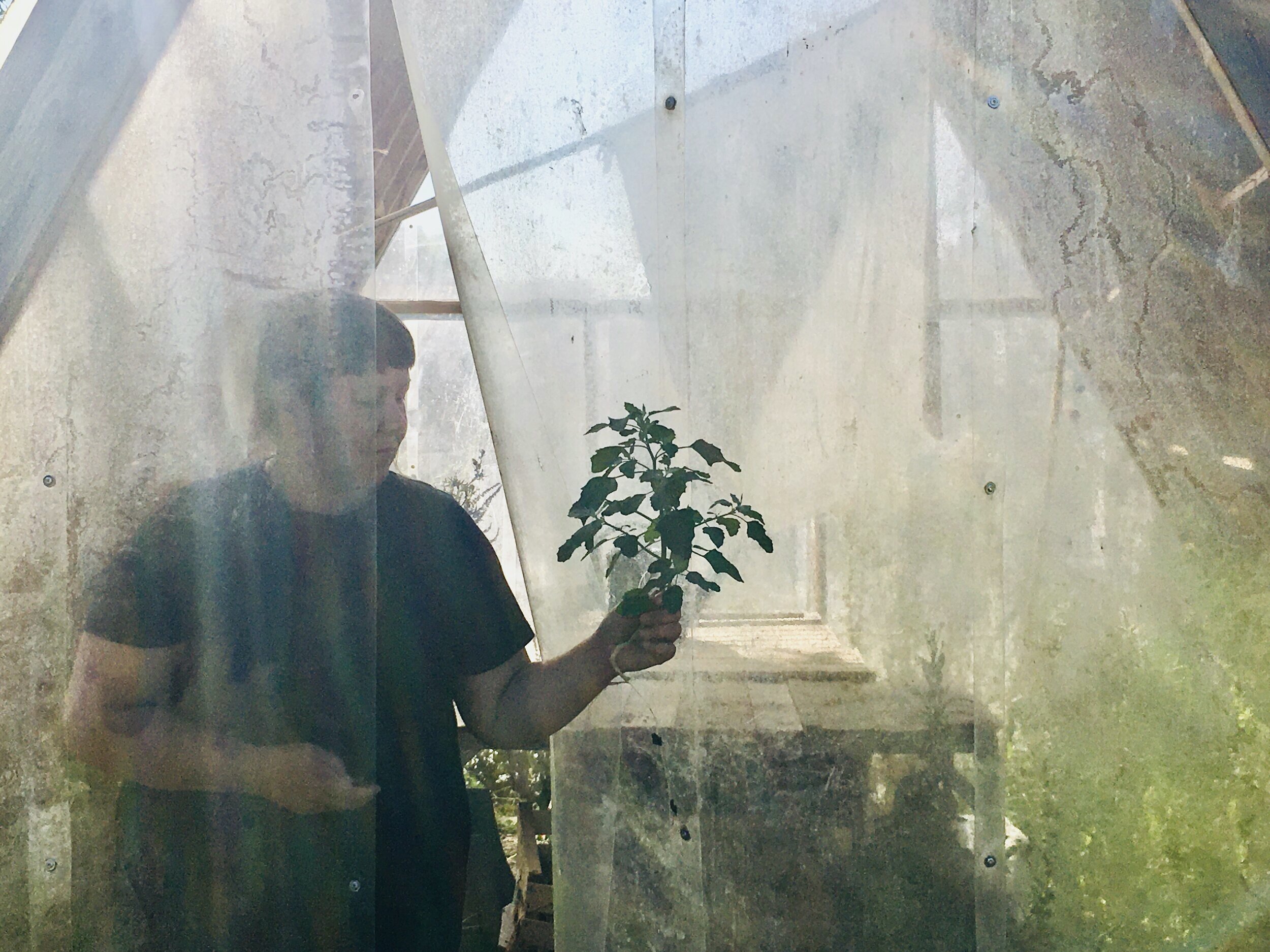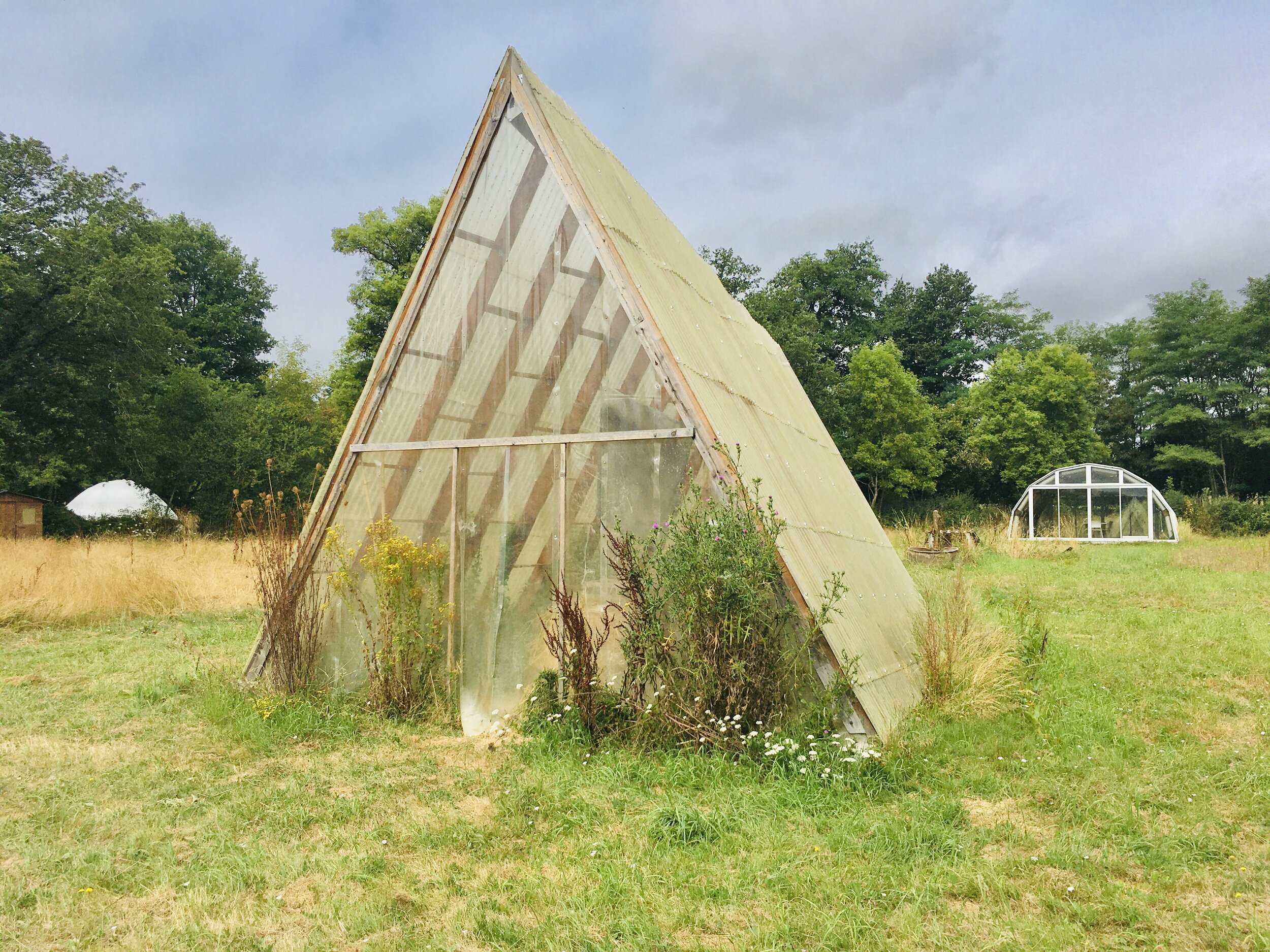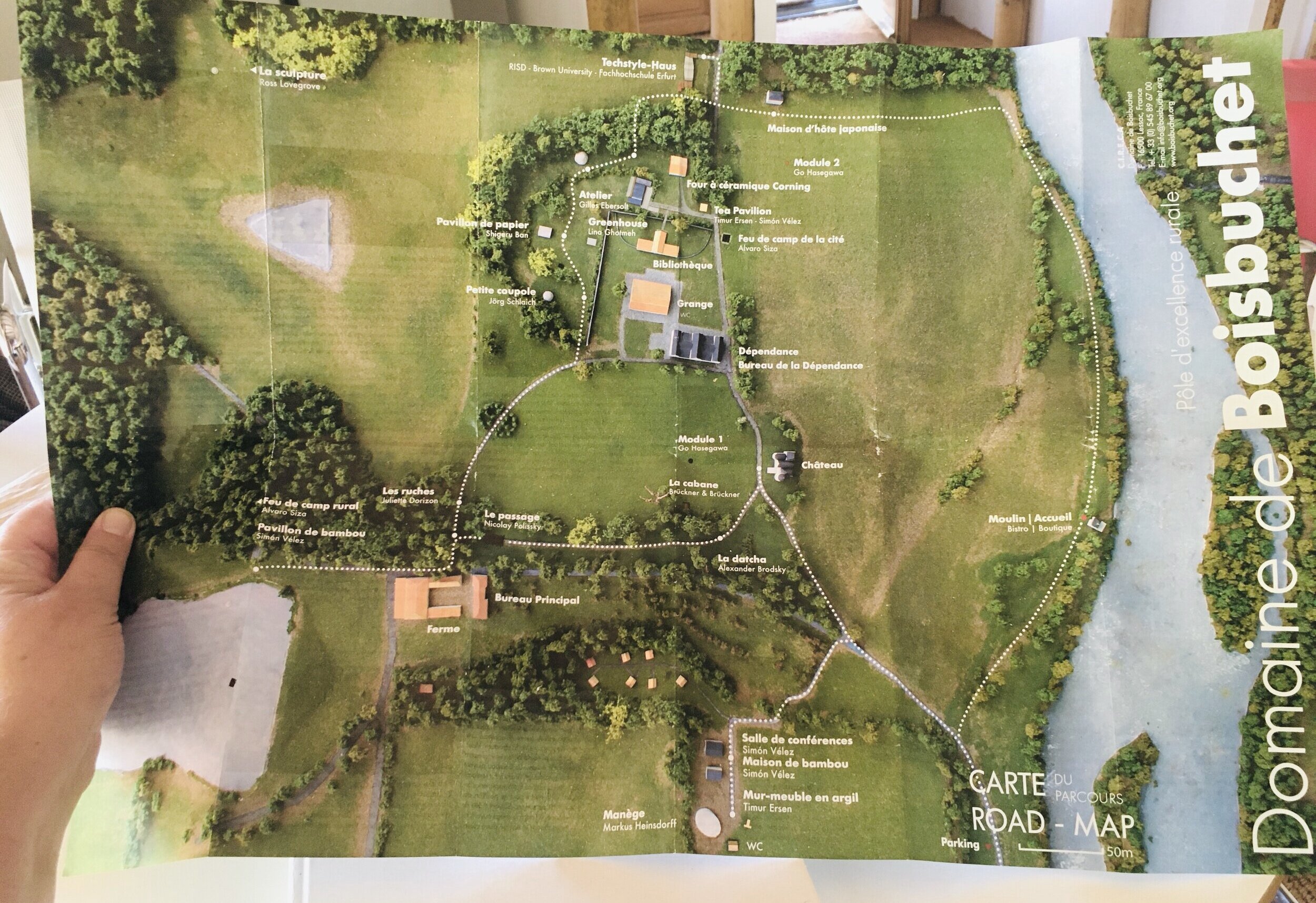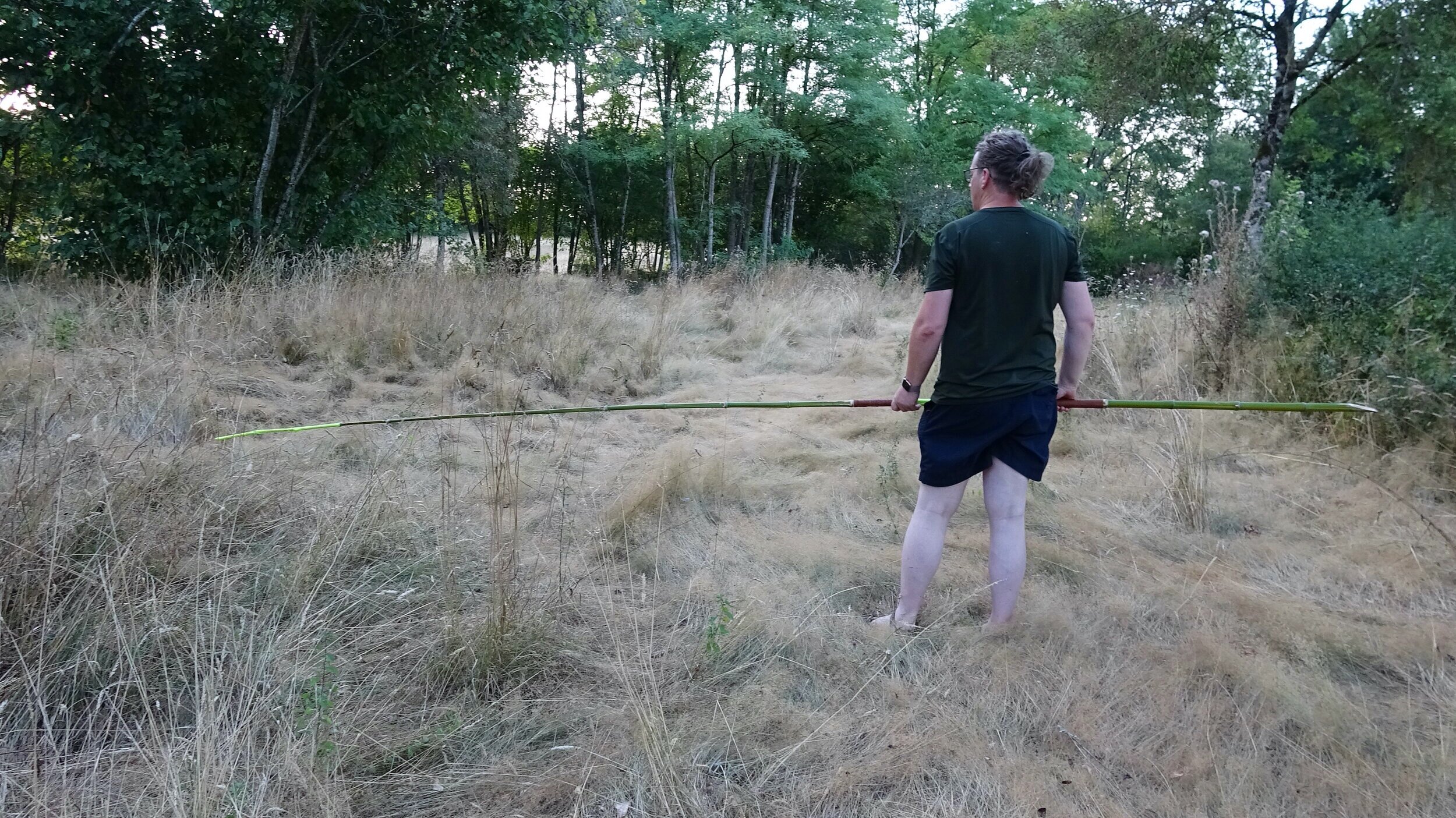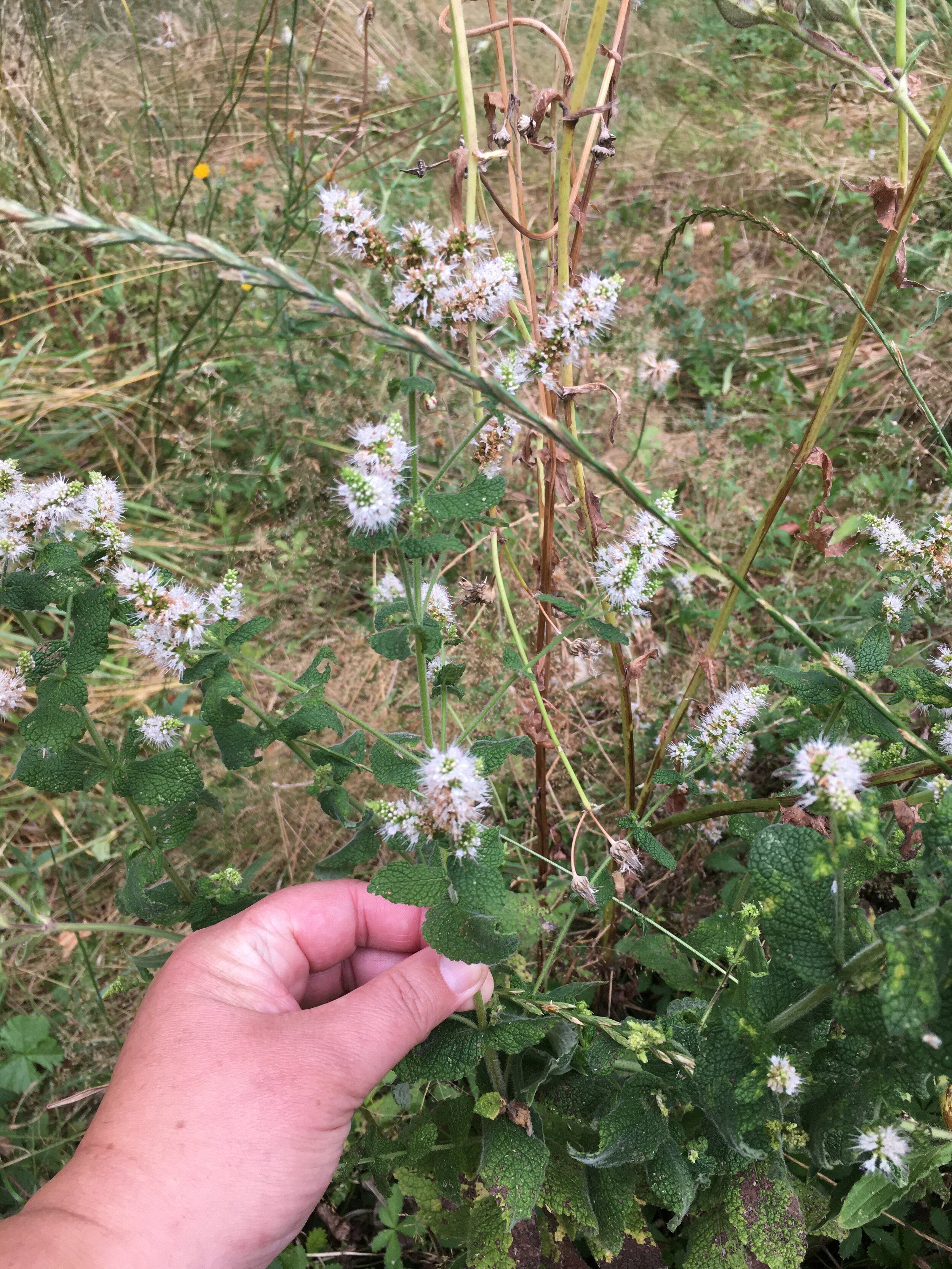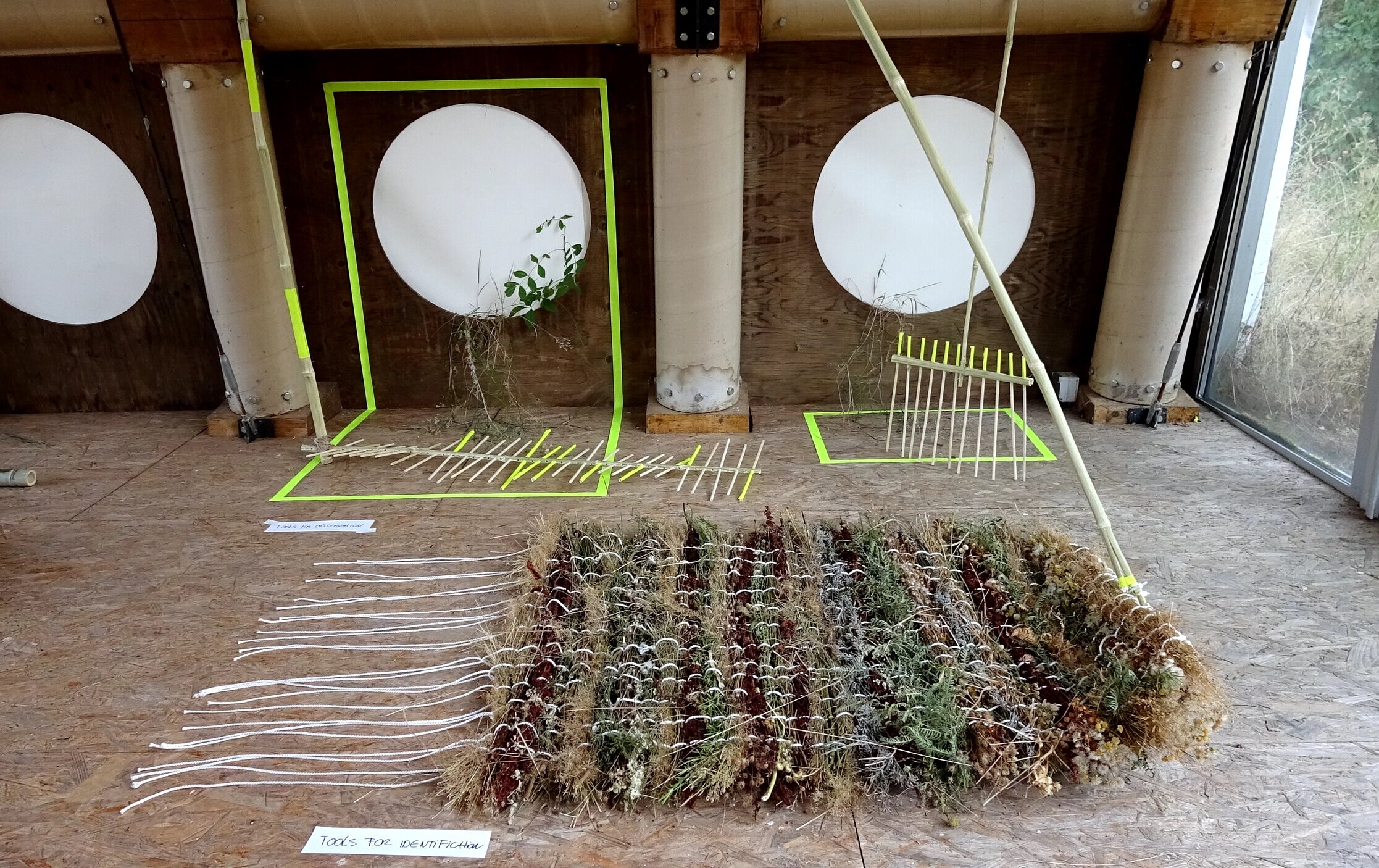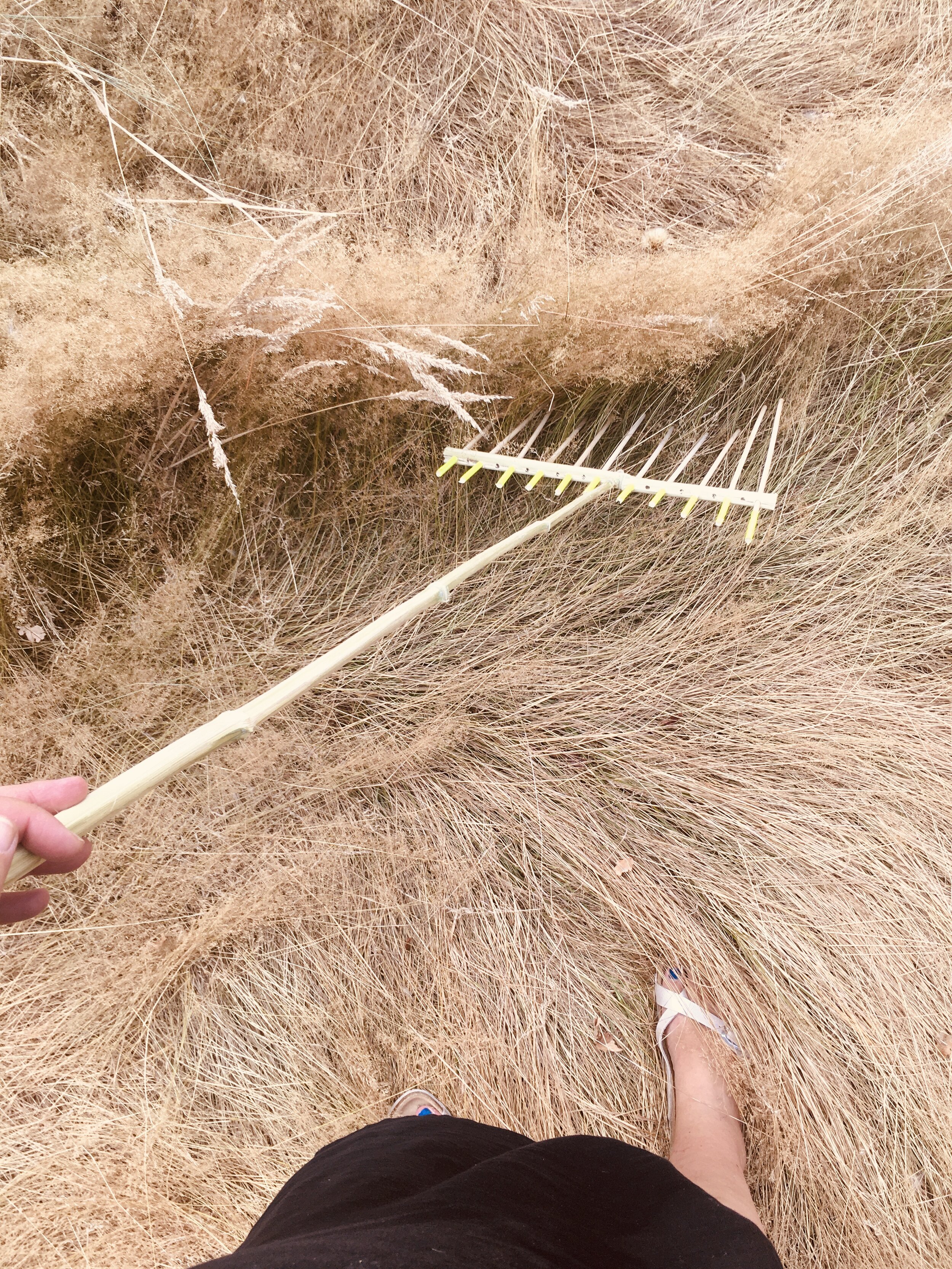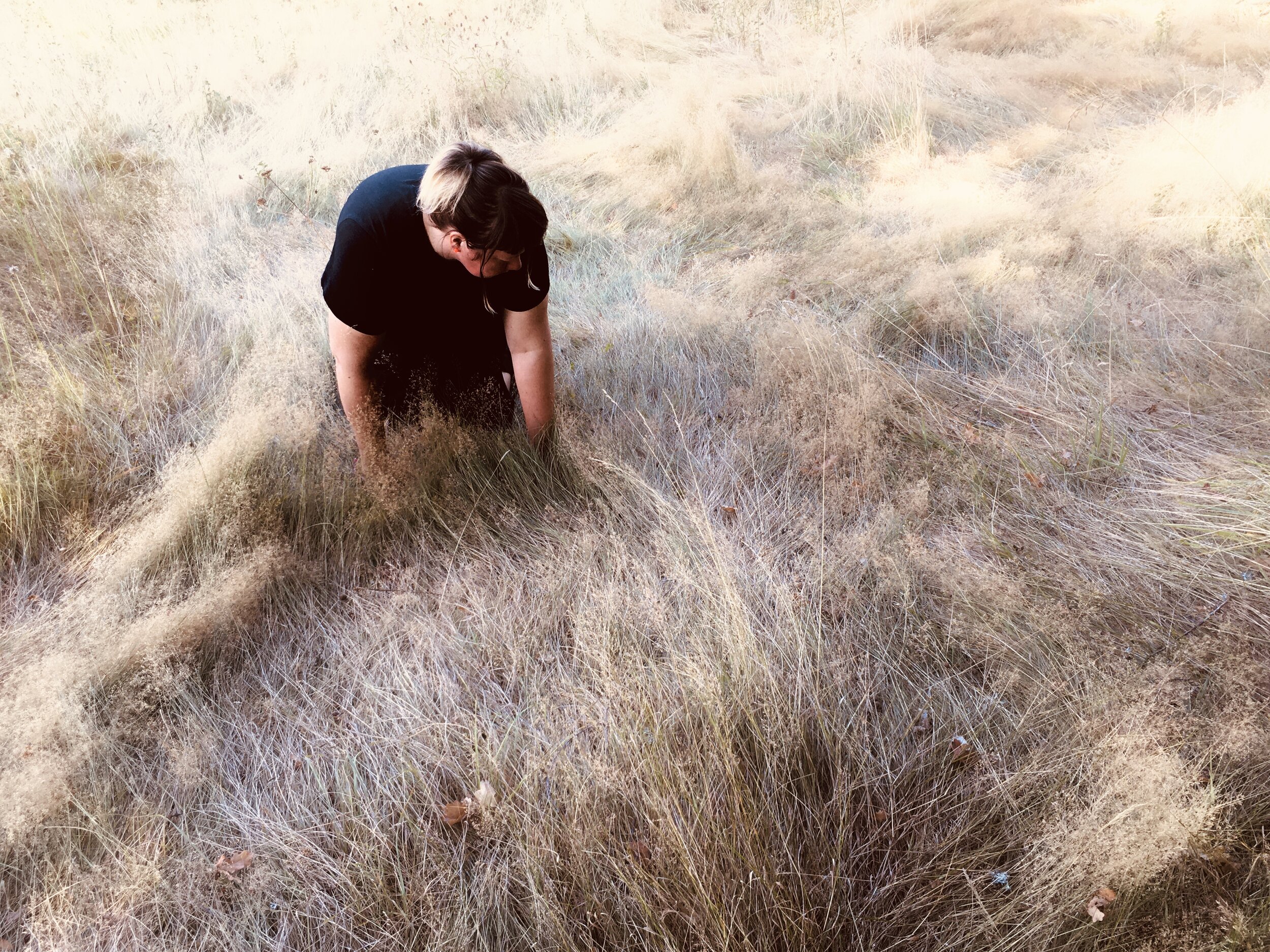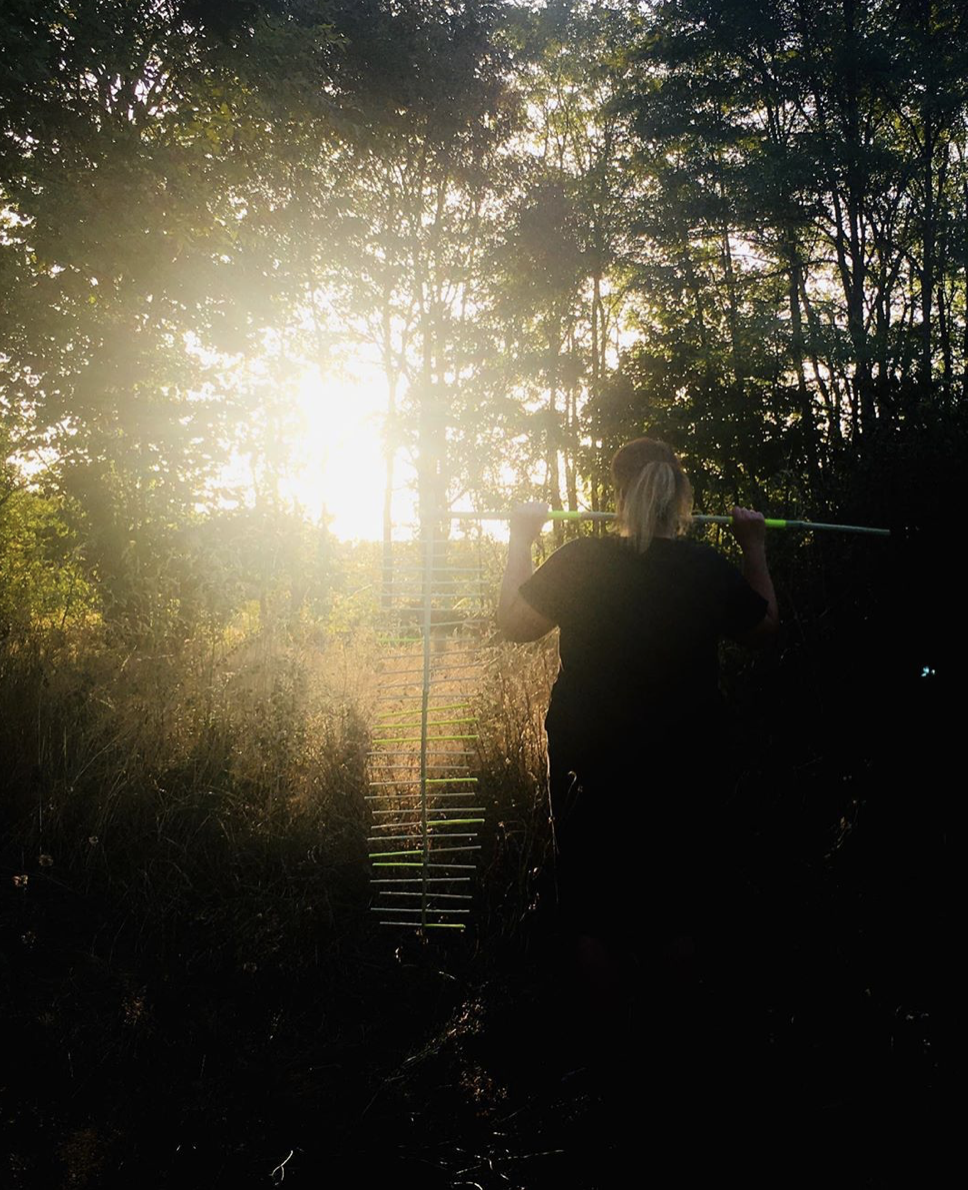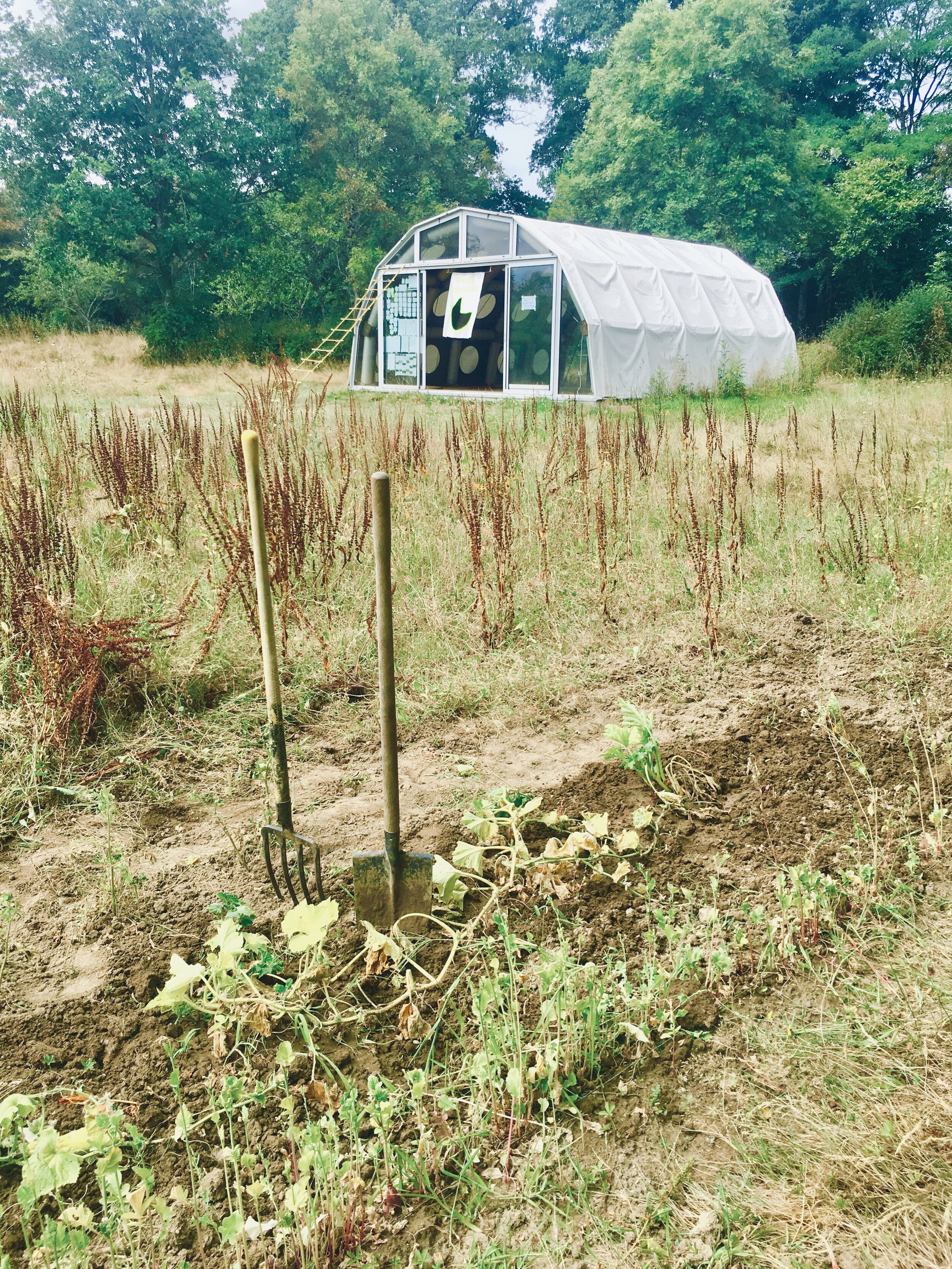Research Project: SPACES FOR ARRIVAL
Project Founders: Tess Wehmeyer, Judith van den Boom
‘Spaces for Arrival’ is a design project developed during a 14 day residency at the Domaine de Boisbuchet in Lessac, France. This project continues to develop and is presented as a series of chapters establishing new concepts and methodologies in rethinking our relationship with nature.
We are designers and gardeners Having a life long connection with nature, landscape and horticulture - growing and tending nature has always been a fundament in how we live and work. As our practice of design and nature has grown together, we also developed a deeper understanding of both. Connecting the design practice with nature puts us in touch with fundamental aspects of life. Nature can not only enable a living and holistic relationship but also foster a deep resonance towards a more sustainable and balanced practice.
Through understanding the complexity of our own nature, we can take part in becoming and belonging to nature itself. Nature makes it impossible to define what is created by us or by nature, the notion of self is part of a whole, encouraging a shift from ego to a more ecological perspective. The attention for the natural ecology is essential to learn new values and methodology by design, in order to stimulate a deeper understanding of the collectivity with nature. When thinking about the garden as a design practice, the output of this practice radically alters when acknowledging the natural cycles that we are inherent to. It becomes a participatory space for creation between human and nature.
Nature in its natural wild form is often unfamiliar and misunderstood in how to engage, yet there is deep potential for growth by not distancing ourselves but returning to a more natural bond. Gardens can be a wild mediated space, allowing us to connect to the natural cycles of giving life, through natural elements, seasons, body, mind and psyche. To allow nature to be the core of the design practice, we have to engage with it and connect to understand the holistic practice it can bring. Through this nature-based learning we can inform a more sustainable, collaborative, and empathic design practice.
So what can we learn from the garden as a doorway to nature to become a more life-giving design practice?
To allow design to become part of this deep-rooted connection with nature, we have to set aside the authority that we use to direct our economy. We have delegated nature to become a backdrop on disposal, used when convenient, but when attending to nature with a different understanding, we can learn how we belong holistically, influencing the processes and practice of design. By becoming part of it, taking time to engage we can obtain insights from the lay of the land, its cycles and constant transformation. We can be shaped by nature, encompassing new perspectives on what it means to give shape and being part of a participatory creation.
‘Spaces for Arrival’ is searching for this participatory creation to develop design methodologies and tools that stimulate becoming part of living processes: Learning to tend to nature and being tended by nature. As a way of loosening the mind and discovering design values that go beyond productivity and efficiency but encourage deep connection. Nature is running in us and through us, aiming to take time to encounter this inseparable link between nature and human.
Tending and being tended At the Domain de Boisbuchet we worked at the original space of the ‘potager', the vegetable garden, currently let wild in times of covid19. The potager is a designated space that can be traced back in the original Domaine design of 1850, functioning as a productive space for growing vegetables. The labor and function of that garden space diminished and with this also its relationship with nature. The research residency facilitated an immersive time, a space disconnected from daily practice to open up to explore in new ways. We used the overgrown garden as a space to reconfigure between self and nature, using ‘Nothingness’ as a garden tool for tending a balanced design practice. Garden tools exist to produce and maintain a garden, but those tools are there to maintain the mind and to arrive in a mental and physical space, tending to nature and being tended by nature.
To become part of a space, it is important to unlearn the systematic order of design processes. To do so, we used the concept of Nothingness as a method to arrive, by rethinking the cycles of night and day, tuning into the land, without aim of production but engaged in learning. Nothingness requires a resetting of our human efficiency modus. Authors like Jenny Odell have been questioning in what we currently perceive as productive and how to oppose it through tools of doing nothing. In a world where our values are determined by our productivity, many find every last minute optimised, often focussing on results, yet pulling us out of the present, making deep connection and wandering often impossible. The concept of Nothingness developed as design process to explore spaces for arrival. Setting the aim of the design process not on its destination but centring itself on arriving, connecting us to a place and space.
To design from the space of Nothingness opens all possibility. It disconnects us from function and aesthetics as we know it, and explores a more sensible belonging to the space, time and place around and inside us.
The importance of making We created tools for observation and gathering, to stimulate activities of drifting, sensing and tending. The observation tools were explored as bamboo rakes, spacial structures to meditate with trees and a compost weaving tool to identify species. The gathering tools were explored through bamboo woven meshes, daily recording of insights and local sound recordings. All physical tools were designed with local material. The gathering, harvesting and processing of that material showed us the potential and application into tools to forge a relationships with the lay of the land. The Potager was the ground for the design process itself, allowing space to foster a deeper understanding, creativity and learning about resilience.
We cannot underestimate the importance of making in order to understand the garden and its potential. Making enables a perspective that our brain cannot comprehend, our hands stimulate rhythms and intuition that cannot always be written out. Our bodies are in itself sensory instruments, gathering data, defining scale, tactility and compass an emotional understanding. Through thinking and making we can comprehend the soil and ecology we are part of. For these reasons, practice-centred design research is essential to connect and understand the territory.
Also, there is a much need space for repetition, trial and error. The mind can focus and wander during making, gathering different insights. Using prototyping as way to becoming one of the landscape. The tools taught us to read the landscape in new ways, not only in a physical way, but evenmore in how we live with the land and become part of its cycles. Through the creating of tools we are able to be resident, and creating a site-specific understanding, and form work as a way of arriving into new understandings with the land we inhabit. The land-or the garden, is the inbetween space, a negotiation space between man and nature.
By placing immediate making experiments at the existing garden at Domaine de Boisbuchet, we underwent a process of undefined encounters between human and nature or what Michel Foucault described as “Heterotopia - spaces of otherness”. Allowing a deep lived-through experience of the lay of the land. It is in those moment of elevation and sacredness that we truly arrive with ourselves and being, belonging and becoming nature. In Domaine de Boisbuchet we used the untended garden as a base for this project — the soil, plants, self seeded vegetables, flowers and wildlife — have all taken part in the design process. The garden is tended by human activity, but what is forgotten is that the human is also tended by nature. As designers and gardeners we wanted to understand that inseparable link as a method for design.
Whilst garden tools exist for maximum productivity, efficiency and maintaining the garden. Spaces for Arrival developed tools and spaces for gardening the mind.

